#sherlock holmes canonically has no interest in women at all not even in irene adler
Text
next time i have to explain amatonormativity and heteronormativity to someone im just gonna make them read the original sherlock holmes case with irene adler and show them adaptations like the Guy Ritchie movies and BBC Sherlock 'cause that's the perfect example right there.
#bbc sherlock#ritchie holmes#sherlock holmes#irene adler#sherlock holmes canonically has no interest in women at all not even in irene adler#amatonormativity#heteronormativity#asexual#aromantic#or maybe#gay#my post
333 notes
·
View notes
Note
Hello, can I ask what do you mean "in canon it's impossible for Sherlock to settle down with a woman"? Like, as a fan of Holmes and always read the books since middle school, I'm kinda confuse here, I don't mean anything negative. Sorry, do you think Poirot (from Agatha Christie) is also queer?
Maybe because I grew up with very religious mother and lived in anti-LGBTQ country, I'm kinda slow in picking up subtext. Like until now I'm still kinda confuse with my friend who have ships from any fandoms (but I still love to hear and read her headcanons or fics about those characters)....
I really agree with you, I've seen many Holmes' adaptations (cartoon, tv series, manga) but Yuumori is clearly the closest to Doyle's works. Do you think the mangaka also love to read Holmes' books?
Story time! (Welcome to "Hyper answers asks like an old lady going on an hour long barely-on-topic tangent at the slightest prompting.)
I totally get where you're coming from, I was raised in like...knockoff Southern Baptist churches. Growing up, homosexuality was presented to me as a sexual perversion incapable of involving real love. It's kind of silly, but it's true: a ship was a big part of changing that for me. I read Tsubasa Reservoir Chronicle as a teenager, and Kurogane and Fai had something that was inescapably romantic and beautiful but never strictly sexual (tho the potential is certainly there). Between that and an online community of LGBTQ+ adults who were incredibly patient and kind towards me even when I was suuuuper ignorant, I started to open up towards queer relationships as...well, just relationships. Relationships that can encompass sex and also encompass love and friendship and communication and partnership and all those other things I'd been taught were exclusive to monogamous straight people. And then, even as terrified as I was, I was eventually able to face the fact that I'd always had crushes on girls just as often as crushes on guys. So yeah, there's a reason Kurofai is my ship of all ships, the actual One True Pairing for me. Because it cracked open a door just enough that I could slowly lever it open the rest of the way. There seem to be quite a lot of anecdotes like this: women enjoying BL/mlm ships is often seen as fetishy (which can certainly be part of it) but for some reason I can't fully articulate it also seems to sometimes be a means for girls and women to explore their own not-straightness.
ANYWAY. SHERLOCK HOLMES. Tbh I'm not gonna go too in-depth because I would bet good money that there are a bunch of scholarly articles on Holmes' queerness. People have probably done their doctorate theses on this! Much smarter and more well-read folks than I have already covered the topic. For me, it really boils down to: he never outright expresses sexual or romantic interest in anyone (we must resist the urge to assume his respect for Irene Adler is romantic just because he is a man and she is a woman). He's almost certainly on the asexual spectrum. But when he does exhibit symptoms one might associate with romantic and/or sexual interest (particularly romantic, imo), it's always towards men (usually Watson, of course). For example, notable flirt John Watson saying that Holmes blushes at his compliments the way a girl does is...suggestive.
The whole thing is complicated by Watson being (in my opinion at least) an unreliable and sometimes downright petty narrator. He keeps going on spiels about Holmes being cold and heartless, only to turn around and describe him greeting his friends warmly and being emotionally moved by music and baby-talking puppies and charming old ladies. It makes Watson sometimes come across as one of those allo people who are so unable to conceive of a life without romantic and/or sexual desire that they start dehumanizing those who don't experience it. Alternatively and maybe more charitably, he just has a big ol' crush on Holmes, is understandably alarmed by it given the time period, and gets bitchy and defensive when he feels it might not be reciprocated.
But ultimately...do I think Arthur Conan Doyle sat down at a desk in the late 19th century/early 20th century and was like "I am going to write some ace queer representation for the tumblr girlies (gn)"? Obviously not. 😅 I do think he might have set out to create a character who very deliberately did not need to have the otherwise almost obligatory straight romantic side-plot. Holmes is never in any way set up as having a life headed towards marriage and children, in spite of how typical that was for the time. The companionship he does express a need and desire for comes in the form of another man. He's "lost without [his] Boswell." He sneakily buys Watson's practice out from under him so he'll be free to move back in and go on more adventures with him. He threatens violence when Watson is hurt. Etc etc. I think it's very fair to interpret it all through a queer lens, the quibble would be more in whether that queerness ever manifests sexually.
I definitely think the Yuumori creators have not only read ACD but also other fiction based on the stories, possibly even including some very old pastiches like this one. I love how seemingly nerdy they are about it haha! The series is full of easter eggs and callouts to other Holmesian works.
As for Poirot, I know very little about the character beyond a few episodes of the show I watched as a young'un, but that is not the mustache of a straight man (I'm joking I'm joking I have absolutely no opinion on that one! 🤣)
Thanks for the ask, and for actually reading this ramble if you got this far! 😅
22 notes
·
View notes
Text
Is a Asexual/ Queer/ Gay Sherlock Holmes canon? And Johnlock?
An opinion!
Regarding Canon, Sherlock appears to be Asexual in all the collection. He does not show any interest whether romantic, sexual or platonic in ANY woman. No, in the canonical content (books) Sherlock does not have any romantic or sexual attachment or desire towards Irene Adler(in books Irene is in Wedding with a other man, BECAUSE she love the man. Sherlock keeps Irene's photograph as The Woman who beat him intellectually, only). Just as Sherlock has no romantic or sexual attraction for Irene, she doesn't feel any of those things for him either.
Yes, I know that many Adaptations suggest that they had "something" with Sherlock and Irene, but adaptations have creative and poetic freedom to MODIFY the original content (and in general I have no problem with that. But in this case it was just a way for such adaptations to assert a Sherlock Holmes' attraction to women, who in books was non-existent. This is the fear of displeasing the conservative public, and therefore "adapting Holmes to heteronormative standards").
Still regarding Canon, l repeart, Sherlock appears to be Asexual in all the collection. He does not show any interest whether romantic, sexual or platonic in ANY woman. It is not clear if he was equally disinterested in mens, not least because homosexuality was a crime in the Victorian Era and it is not as if Sherlock Holmes could talk about his sexuality openly.
On the other hand, Sherlock Holmes canonically says that "Watson is the only fixed point in my life" and he was also upset by Watson's marriage calling it "the most selfish thing Watson has done in all our years of partnership, I was alone".
These are lines that maintain that, although asexual, he may have developed some platonic interest in Watson (in keeping Watson close, either for his cases or to keep him company).
Watson, on the other hand, was canonically married at least 3 times (taking into account dates) and he himself says he has experience with women on "three different continents". That he likes women is indisputable. However, Watson is also known for being an "unreliable narrator", that is: he admits to purposefully omitting facts that may embarrass or expose clients unduly, for example. But Watson is also a terrible narrator because he has many wrong dates and data in his reports (for example, a case that takes place during the period of Holmes' "death").
With that, many fans read between the lines and assume that since homoaffective relationships were a crime at the time/Era Victorian, Watson would never tell the public anything that would expose Sherlock and himself. And when such fans look "between the lines" they see Queer subtext (honestly, I highly doubt Doyle did this on purpose, so it's just a coincidence that just the books where the asexual detective also unwittingly offers room for Queer assumptions. Very conducive for fans to come up with extra-canonical theories and assumptions).
It is from these things that people assume that Sherlock is asexual (with a unique and exclusive attraction to Watson in his life, and probably platonic, that is, he adore and is loyal to Watson, wants to have him exclusively by his side for cases and companionship, although he feels no need to turn this relationship into something romantic or sexual - that to me is "love platonic" (Even though fans might assume, in extra-canon, that Holmes might want MORE, if it were reciprocated. It turns out that just by taking the Watson reports and probable omissions into consideration, a lot is possible) and that either Watson is 1) a heterosexual oblivious to Holmes' interests, 2) or is bisexual, and does not tell us due to Era Victorian (Honestly? I think the first option where Watson is a heterosexual man who didn't realize Holmes' affection BECAUSE Watson see but not observe, this is more true for Canon. Even though in Extra-Canon fans might assume that Watson might be a humble narrator who doesn't tell us the facts as such).
The question that remains is:
We already have many adaptations that feature a heterosexual Sherlock Holmes (for those who wish to see him that way, even though the canonical book content does not give him any interest in Women). But then why are we in the 21st century and we don't have a Asexual/gay/Queer Sherlock Holmes??
Why not, when this is actually the closest thing to reality??????
#sherlock holmes#arthur conan doyle#acd canon#johnlock#sherlock x john#the private life of sherlock holmes#bbc sherlock#rdj sherlock holmes#granada sherlock holmes#sherlock is gay#Sherlock is queer#Sherlock is ace#asexual Sherlock
66 notes
·
View notes
Text
Genuine doubt/ question-
I'm a Johnlock shipper (obviously) and I recently started to read the books as well (original books) and I did find many johnlock moments/texts everywhere.
My question is that since Johnlock has never been made explicitly canon yet, I really wanted to know about the actual purpose of Mary Morstan in the books.
Like if Holmes and Watson were meant to be best friends and share a platonic bonding with each other, why is it that Mary exits the stories and/or becomes a background character in most of them after The Sign of The Four? If Holmes and Watson are meant to be friends, an addition of one more friend (Mary Morstan) won't hurt anyone...
I get it that the era in which the books were released used to undermine the importance of women altogether but Irene Adler was also written in the same era and that too by the same author. Her character was very interesting and respectable.
Mary Morstan's wasn't... and she was supposed to be the wife of Watson, who is not only a main character but a POV character too in most of the stories... whoever he's close to should bear some kind of importance to the story. Mary should have been given more importance in that case...
To anyone who denies the possibility of Johnlock, if Holmes and Watson were supposed to be platonic, there was really no reason to throw her out of the stories. Not just in the books, but almost from any other adaptation... she could very well spend her time in the company of Watson and Holmes in at least some adaptation and it wouldn't have made much difference. (She does that in BBC Sherlock but still comes off as a poorly written character).
If they're supposed to be platonic and best friends then why does everyone (including Doyle himself) think that if John Watson and Mary Morstan are together then John and Sherlock can't be together (I've seen this type of argument in the whole Sherlockian fandom-not just BBC Sherlock)?
I'm not trying to undermine the importance of platonic relationships here at all.
What I'm trying to say is that there could have been an alternate end to the entire series of Sherlock Holmes where Holmes and Watson buy 2 cottages instead of one (both of them can be close to each other). Holmes could have moved in to one cottage and Watson could have moved in to the other cottage with his wife. In that way Holmes and Watson wouldn't have separated from each other and this could have been an equally happy ending.
But Sir ACD didn't go for that. Instead he ignored the existence of Mary Morstan altogether and only Holmes and Watson were there with each other in the end... Why?
Mary doesn't have to exit a particular adaptation all the time but she does that anyway, why?
One more thing, what purpose does Mary even have in the books? I failed to understand...
#sherlockian#johnlock#sherlock x john#bbc sherlock#sherlock headcanon#acd johnlock#acd canon#acd books#acd watson#mary morstan#holmes/watson#queer#doubt/question
216 notes
·
View notes
Text
We need to talk about Irene Adler
So correcting a huge myth about Irene Adler since I'm here in the YuuMori fandom and watching the world burn over idiots insisting Irene was canonically Sherlock's love interest and his equal in terms of genius because she fooled him.
A few points before I begin,
I will be talking about the seperate adaptations and their interpretations of Irene and her relationship to Sherlock in them.
I will not be using this post to hype up any ships because while this issue stems from the ship situation its also because people seem to misrepresent why she was an important memorable presence in Sherlock's life.
Irene is one of my favorite characters in the franchise as a whole to the point that Bond from the James Bond series despite never having been my favorite has become my favorite.
Some spoilers for yuumori, proceed with caution.
I stuck to she/her when talking about Irene as a character prior to *spoiler* for ease of understanding.
Onwards I guess.
The Books
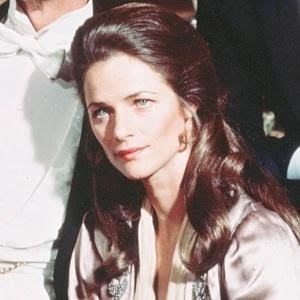
Doyle had himself stated that Sherlock was never in love with her. Sherlock is canonically aro/ace in the og series despite it never being said in so many words.. He considers such things like romance and love to be abhorrent. Its part of why he has a hard time accepting Mary, not only because she makes Watson reconsider priorities but also because he doesn't really care for women much. To him, given his general behaviour and the society he lives in women were never really considered smart.
Irene on the other hand has absolutely no interest in him at any point in the og. She is deeply in love with someone and fools Sherlock and disappears with her husband. The reason Sherlock keeps her photograph as a keepsake is because he admires her as "the woman". She is the woman that changes his perspective on women in general. She vexes him and he admires her ability to fool him so thoroughly.
Another thing about Adler is that she isn't a genius like Sherlock, nor is she a mastermind like Moriarty. What makes her unique and allows her to one up Sherlock is a combination of factors. She uses everything at her disposal to fool him. Her charms, her ability to read people, she is street smart and cunning, a talented actress and most importantly, she knows that men underestimate her. So no, she wouldn't have been magically able to one up Sherlock multiple times like many people think she can. She isn't his equal because she can always one up him, she is his equal because she managed to one up him at all and Sherlock isn't foolish enough to ever underestimate a woman, particularly Adler, ever again.
RDJ Movies
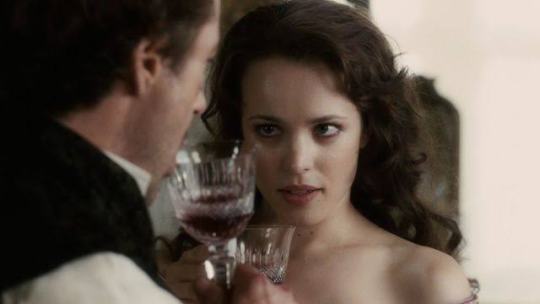
Here Irene is explicitly Sherlock's love interest. Her role is expanded a lot more and she is Holmes' weakness. The only aspect that stays the same is that Irene can keep Sherlock on his toes once again using everything at her disposal however, Sherlock also loses his common sense around her. Anytime he falls for her tricks he is actively doing things he wouldn't normally do and his deduction seems to go kaput for the most part. Its not entirely because of plot related oocness but rather I think it implies that Sherlock makes mistakes when around her which would only strengthen the general idea Sherlock worked with where he sees romance as an unnecessary distraction. Again, Irene isn't as smart as Sherlock and Moriarty, but she CAN one up Sherlock.
The key difference being that a) she is explicitly his love interest and b) Sherlock is stupid around her and she knows that and OG Sherlock wouldn't have fallen for any of her actions more than once. Here she knows about his deduction skills so she overwhelms him with faked evidence because she knows him and he knows her enough to not underestimate her. Also here, Sherlock IS in love with her.
BBC
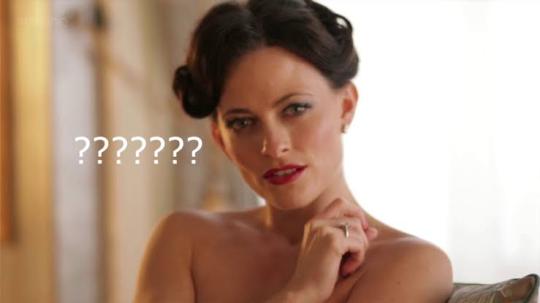
Listen...I heard Irene was supposed to be a lesbian but like from what I heard (and saw) she fell for Sherlock. Its probably the lesbian in me talking but I just don't get what the hype about Cumberbatch even is but I digress. Now IDK how much of what I know is out of context but from what I remember Irene chose to show up naked on their first meeting. She chose to not give Sherlock anything to deduce. Kinda smart maybe, but it ignores a lot of other stuff, clothes and accessories aren't the only things that could be used for a typical Sherlock scan. (Ignoring the fact that the sherlock scan isn't actually effective at all in modern settings with how drastically things have changed between 1800s and 2000s). I just don't have much to say tbh. I didn't watch the series, I just didn't vibe with it I guess.
YuuMori (this one gets long)
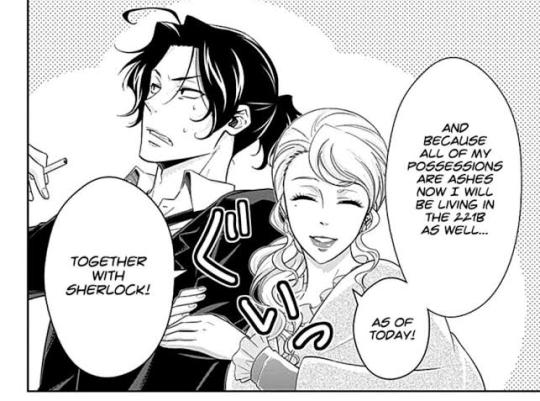
YuuMori actually does do somethings in a way similar to the og series while obviously deviating massively at its core. Similar to the og, Sherlock is irritated and vexxed by her for most of their meeting. He in general doesn't think much of women in the usual 19th century social structure way. Women weren't really considered very smart or great at the time y'know. Anyhow while Sherlock is never openly dismissive of women he does not particularly enjoy their company (outside of Mrs Hudson but that's cause of the whole pseudo family dynamic). He calls John a woman for being moody and (rightfully) upset, he says Mary is "smart for a woman", and while he isn't doing so because he hates them its pretty obvious he doesn't like them either. Hudson points out that Sherlock feels distressed around women and when John brings a friend over, he gets so uncomfortable that he ensures that she leave immediately. Sherlock also states that he has no interest in women and doesn't see why anyone would want to marry someone at all. He just doesn't give a shit about romance in any way shape or form. He only accepts Mary fully because he realises that marrying her would make John feel happy and fulfilled in a way that crime solving with him won't.
Irene herself is never interested in him at any point. She sees him as an out given her situation, she clings to him till she gets a better deal and escapes. She worries for him not because she is into him but because she caused him, Watson and Hudson harm by dragging innocent civilians into her mess. She only becomes fond of him when he comes to save her, that's when she finally starts to soften a little around him and yet she lies to him till the end because again, he never fully factors into her plans for herself.
Sherlock also shows no interest in her romantically at any point. He is initially interested in meeting this cunning woman that doesn't fit the definition of what he considers a woman, immediately losing all interest the moment she turns out to be like everyone else. They know each other for 1 day and throughout it he is mostly irritated by her and only feels intrigued again once he realises she is lying to him. His investment in her safety is because she is an innocent person who deserves to live. Sherlock for all his love of investigating corpses isn't okay with letting innocent people die. He never states a fondness for her at any point and in fact makes it a point to comment against the sentiment, keep in mind Sherlock doesn't mince words or lie and evade questions, it makes no sense for him to lie if he was infact fond of her. He does however begin to view her as a friend of sorts and is deeply impacted by her because of the way she changes his perception of women much like the og books. Moreover, the "he had special feelings for her" comment is made by Mycroft to John, who is pretending that Irene is actually dead and needs to get this info to Sherlock and does so by piggybacking off the false rumor that he was courting Irene (its in the manga).
Once James comes into the picture, the dynamic changes, James is devoted to William. He has no particularly note worthy reaction to Sherlock's name or presence at any point outside possibly being seen or recognised because it can mess up William's plans. He is never seen reminiscing about Sherlock or anything of the sort and even their reunion doesn't feel particularly romantically driven. In fact James' has a realistically more intense reaction to the news about William than to his reunion with Sherlock. The reason James even shows up after Sherlock finds our about Irene's death is probably to ensure that Sherlock doesn't actually open the envelope cause he's smart enought to realise that the person who passed by was the same one.
Okay god that was long. Anyway onto why Irene/James is different in this version and why Irene not immediately one upping Sherlock isn't a huge issue. For starters, Irene does infact one up Sherlock. Sherlock is fooled a couple of times by Irene and James but unlike the og version where Sherlock would never fall for her tricks again and the RDJ version where he actively stops thinking straight around her, here he is fooled by the fact that Irene/James never puts all his cards on the table. Things that Sherlock uses to guess things about Irene are things that Irene is deliberately planting and has been planting for the entire duration of their meeting.
Conclusion
Firstly, Irene wasn't Sherlock's love interest in the og books, Sherlock was never in love with her but rather admired her deeply for one upping him at all. He wasn't in love with her in yuumori but was definitely in love with her in the movies. Idk what the hell bbc is.
Secondly, Irene wasn't Sherlock's match at every step. She beat him once and the fact that Sherlock was even beaten at all was why she was so memorable a person to him which is why he refers to her as "the woman". Irene was in no way a match for Sherlock and by extension Moriarty long term. Those two were each other's perfect match cause they were meant to be each other's death. Irene was instead supposed to be the person that used Sherlock's biases and self assuredness against him.
#irene adler#james bond yuumori#yuukoku no moriarty#moriarty the patriot#lets just clear some shit up#we literally have word of god from Doyle that Sherlock didnt love her#you're allowed to have ships but stop lying
29 notes
·
View notes
Text
Let’s talk about the similarities between Irene Adler’s theme (violin solo) and Introduction and Rondo Capriccioso.
If you haven’t heard Introduction and Rondo Capriccioso, I reckon you do now. The patterns in both compositions are very similar, and it costs nothing more than a mindful pair of ears and some knowledge in classical music to see it.
Okay, I know that this isn’t a very important detail, and surely it could all just be a coincidence, but what do we say about coincidences again? “The universe is rarely so lazy”, isn’t it? So, as you can see, I’m here. Have in mind that I don’t really know what I’m doing here, I’m not a classical musician, I have never written anything similar to this, or have ever even analyzed any medias from their music, and I don’t even have English as my mother tongue. However, it is quite an intriguing idea, so this is just me having a go at it.
Rolling back a few pages in history, Introduction and Rondo Capriccioso was written in 1863 by Camille Saint-Saëns for the violinist and composer, Pablo de Sarasate, who was then only 15 years old and was recognized as a violin prodigy. The piece was originally intended to be the rousing finale to Saint-Saëns’ first violin concerto, but succeeded as a solo composition, resulting in him publishing the piece individually.
There wasn’t much going on with these two musicians, as far as I can tell. Sarasate admired Saint-Saëns’ skills and talents, asked him to write a piece that the young Sarasate could play, and there came Introduction and Rondo Capriccioso (and his first violin concerto in A major as well but we don’t talk about that). Irene Adler’s theme, on the surface, is Sherlock Holmes’ composition written for the supposedly late Irene Adler. Sarasate and Irene Adler were, in fact, very alike. They both had certain charms that made others go wild for them. They both had never gotten married and were flirting with many people (and having sex, too, but then again it was Irene’s literal profession, so it doesn’t really count.) Their works were rarely sentimental and they made them look effortless, however difficult. It might not be too bold to think that the similarity was meant to tell us that Sherlock did not decide to write this piece by himself: Irene had asked him to do that. Perhaps not exactly the piece itself, but the feeling it was supposed to carry: grief. She asks him to grieve for her. Why? Because she needs to play dead. She needs to disappear. And she knows that if Sherlock Holmes himself says that she’s dead, no one would doubt that. In context, this actually makes quite a lot of sense (seeing that there is no way Sherlock could be so certain that she’s dead if she was, in fact, not dead). It could also be a way to remind us that they are nothing more than acquaintances, that their feeling towards the other (at least, until the moment Sherlock composes the piece) is one of admiration and respect for the other’s intellect - similar to the ACD canon.
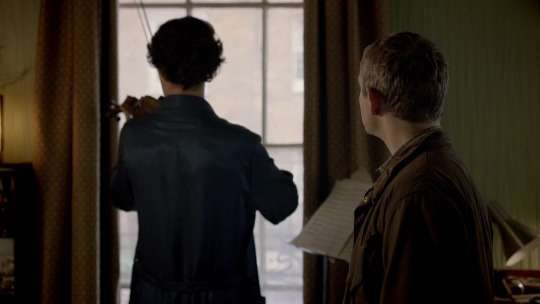
TL;DR: On the surface, the similarity between these two compositions is a foreshadow for us, telling us that Irene Adler has never been dead, and Sherlock knows that.
But let’s dig a little bit deeper in Saint-Saëns and Introduction and Rondo Capriccioso, especially on Saint-Saëns, because he was an interesting bloke.
Camille Saint-Saëns was known to had been performing in drag and engaged in homosexual activities, yet kept on denying his homosexuality - “I’m not a homosexual, I’m a pederast!” (Hold on where did I hear this oh-)
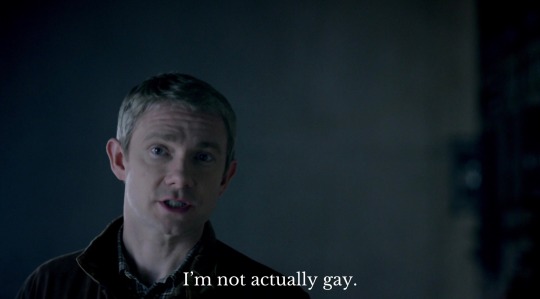
Better yet - he had shown signs of liking both men and women. (Although I must admit, he had a very terrible love life. Bit like John in ASiB, actually, considering he had a string of girlfriends but they were never together for too long. He got dumped on Christmas, for God’s sake!) And he fell in love with one Augusta Holmes, an exotic and bizarre woman, a lady so brilliant and excellent that her wits and talents made many fall for her. “We were all in love with her,” remarked Saint-Saëns once. (It’s quite interesting because, well, this. No one will convince me that Irene didn’t mean they were both in love with Sherlock Holmes.)

Another comment he made about her was, “Like children, women know no obstacle. She is a woman, an extremist.” And the comparison between Augusta and a child sort of parallels John’s (and Lestrade’s, and Sherlock’s himself) comparison between Sherlock and a child in TSoT and HLV. Anyway, Saint-Saëns proposed to her and got rejected (“John, I think you should know that I consider myself married to my work, and while I’m flattered by your interest, I’m really not looking for any...” - it was a downright rejection and I don’t think it’s just coincidental), but she remained a big part of how he perceived life and love and, well, women. In all of his later works, women were mostly depicted as smart and dominant, using their wits and sexuality to ruin the main character/hero. A misogynistic mindset, honestly, but who am I to say? Worth to mention that he was also abused by his mother, who was at least partially responsible for Saint-Saëns’ misogynistic mindset. (And didn’t we all agree that John and his dad had a difficult - abusive - relationship? If we didn’t, we did now.)
Overall, Saint-Saëns and John were quite similar. So if we put John in as Camille and Sherlock as Augusta, maybe his rejection from ASiP has affected John’s perception of his attraction to men, more specifically his attraction to Sherlock. Which means, while he indulged in his sexual desires for men, John also sees it as dangerous and that it could ruin him, even if he doesn’t acknowledge that. Hence his “I’m not gay”, “We’re not a couple” to Irene - who is a Sherlock mirror. His attraction towards Sherlock literally scares him.
TL; DR: Saint-Saëns could be seen as John’s mirror, Augusta Holmes a mirror of Sherlock, and their relationship could reflect John’s point of view (on his bisexuality).
So. A composition written by Sherlock for his mirror, taking inspiration from Camille Saint-Saëns - John’s mirror. What could we deduce from that? John is what and who inspired Sherlock to do something for himself. John inspired Sherlock to acknowledge himself. John has taught Sherlock how to find out more about himself. And since the episode is literally about sex and love, Irene herself is also about sex and love, then that, that is what John has taught him.
Funnily enough, in the first premiere of Introduction and Rondo Capriccioso, Saint-Saëns was the conductor, while Sarasate was the solo violinist. Pretty telling, I suppose. (Conductor of light - also a reason I believe Saint-Saëns was John's mirror.)
TMI: ACD canon Holmes and Watson went to some of Sarasate’s concerts in between cases, so this could also be an attribution to the original version.
#sherlock holmes#john watson#tjlc#probably#bbc sherlock#sherlock bbc#sherlock bbc analysis#a scandal in belgravia#irene adler#sherlock rant#i don’t even know what i’m doing#irene’s theme and Introduction and Rondo Capriccioso
19 notes
·
View notes
Text
Of course, I still haven't seen all the adaptations (like films made in the 70s-80s), but here's my ranking of Sherlock TV/film/game adaptations:
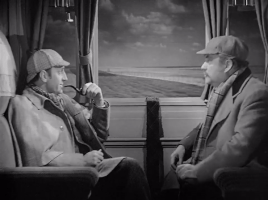
Basil Rathbone/Nigel Bruce films from the 40s. Basil's air of cool intelligence is perfectly balanced with his small warm smiles, while Nigel plays a bit of a bumbling Watson to perfection. (Basil looks so much like my mental image of Holmes, too. And one of Holmes' aliases was Captain Basil, so that's also neat.) Also, there was no mention of the cocaine. The adaptations took his occasional usage to the extreme in a few instances.

Robert Downey Jr. I really dislike people who hate these films because they're different. Most people are just averse to an American playing London's beloved son. Guy Ritchie, before BBC Sherlock, resurrected many long-abandoned quirks of Holmes' that people seemed to dislike, despite them being canonical: scientific experiments, violin playing, extreme disguises, indoor gun practice, boxing, etc. Guy also breathed fresh life into Irene Adler, Mrs Hudson and even included Watson's once-mentioned dog (Study in Scarlet). Rachel McAdams made an impeccable Irene, and Jude Law, while perhaps too suave for a Watson, has been unmatched in playing the most dedicated, loyal and loving version, which is true to the character.
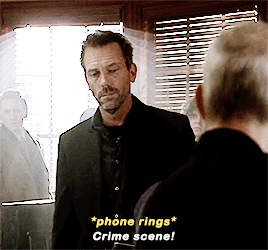
Hugh Laurie on House. It's unofficial, but it's there. House, Holmes. Intelligent reasoner with tendencies towards drug abuse, poor social skills and detached from everything but his work. Has a constant companion named Wilson. Fairly obvious. Anyway, I think Hugh Laurie's House so expertly embodied the modern Holmes, with few flaws. He was cold and logical, but human and sometimes soft, as Holmes was yet many portrayals forget.
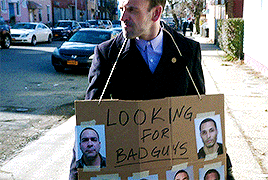
Johnny Lee Miller on Elementary. The perfect blend of all of Sherlock's traits without verging too much on any one of his extremes. Not too rude, not too averse to human interaction, not too strange. Bonus points for Gregson, who was as much a fixture in the stories as Lestrade, though you wouldn't know it from most adaptations.
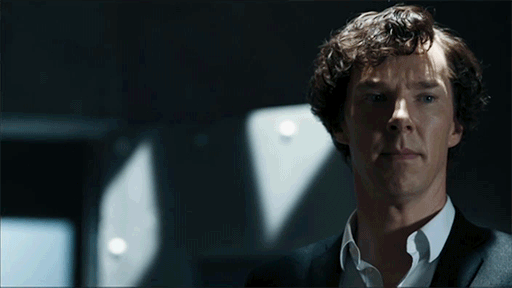
Benedict and Martin on BBC Sherlock. I thought the modernization was a touch overdone, and most changes were so huge that characters felt "in name only". Large chunks of episodes would pass via text message, Irene was unnecessarily promoted from scandalous actress to dominatrix, and Watson was soft, emotional and useless. Moriarty was so eccentric rather than cold and terrifying that I found myself drawn to him, in the way you're drawn to a charming sociopath. Benedict was rather autistic in his portrayal, and while it is a sound theory that Holmes was a touch on the spectrum, Benedict took it to the most cold, rude extremes. The queerbaiting was just off the charts pandering to the legions of women and girls who watched. I am still indebted to it for instilling in me an interest in Holmes, but I do not wish to ever watch it again.

Frogwares' Sherlock and teleporting Watson. For the same reason as BBC, they're more caricatures of themselves. Holmes was almost perfect- in a tacky and offbeat way -in The Devil's Daughter, and the game managed to adapt one or two lesser known cases (A Case of Identity) in fun ways. The use of Holmes' Baker Street Officials - the street children - for perhaps the first time in an adaptation was a nice touch, as was the disguise system.
#sherlock#sherlock holmes#john watson#irene adler#inspector lestrade#inspector gregson#arthur conan doyle#sir arthur conan doyle#conan doyle#robert downey junior#jude law#mrs hudson#hugh laurie#rachel mcadams#frogwares#basil rathbone#nigel bruce#a study in scarlet#bbc sherlock#joan watson#elementary#johnny lee miller#the devil's daughter#benedict cumberbatch#martin freeman#guy ritchie#a case of identity#moriarty#professor moriarty#william james moriarty
24 notes
·
View notes
Text
What happened to Sherlock? Part VIII - The Sign of the Hetero Norm (2)
This is the second installment of my meta about the significance of Mary in BBC Sherlock and hypothesis #8 in this meta series; that John is not the father of Mary’s baby. It follows directly on the first installment, which you can read here.
(For the record, I’ll also repeat the disclaimer: My suspicion here only concerns John’s biological offspring. It would still be possible that John, and perhaps also Sherlock, might father the child - if it exists - by adoption. It does not exclude a metaphorical reading where the baby represents, for example, Sherlock’s and John’s relationship. i also want to stress that this hypothesis is an attempt at logical reasoning based on observations in the show and in ACD canon; it’s not meant to be ‘gossipy’ and has nothing to do with whether I would actually like to see this happen or not - that’s a whole other story. ;) )
Mary’s background and canon similarities
The first time Sherlock meets Mary in TEH, he deduces a series of things about her, most of which we haven’t seen explained this far. But there’s one thing in particular that seems to stand out to him: that she’s a liar.
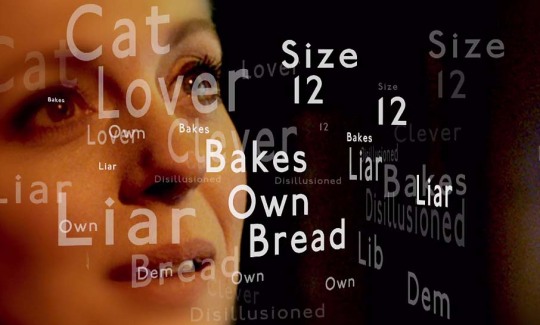
In HLV we learn that Mary has lied about her background to John, and she keeps lying and deceiving in S4. But even if HLV and S4 aren’t ‘real’, and Assassin!Mary only exists in Sherlock’s imagination, this doesn’t mean that his first deduction was wrong; the fact that Mary’s lying trait is repeated later seems to indicate that it’s important. Mary might be lying about other things instead. Like, for example, about who’s the father of her baby. (Continued under the cut)
Some other deductions in this scene might also be significant; that Mary ‘bakes her own bread’ might refer to the idiom ‘a bun in the oven’, slang for being pregnant. A hint that John will not be responsible for her later pregnancy?
Another ‘feature of interest’ about Mary is her possible US connection. America is definitely a recurring theme in BBC Sherlock; the US or ‘America’ is referred to over 20 times throughout the show. These references occur on a plethora of different occasions, and in three specific circumstances the CIA is mentioned. In one of them (HLV) we learn from Magnussen that Mary has been doing “wet jobs for the CIA”. Sherlock also suspects that while Mary’s accent is English, Mary herself is not. So, Mary might have some kind of connection to America - at least in Sherlock’s mind. The idea is hinted at, but never developed.
Mary Morstan’s British background may be described in canon, but ACD’s original stories contain even more US references than BBC Sherlock. Big parts of the novels A Study in Scarlet (STUD) and The Valley of Fear (VALL) take place in America, and many characters have connections to the US - the most prominent of them perhaps Irene Adler in A Scandal in Bohemia (SCAN), who was born in New Jersey.
The Noble Bachelor (NOBL) is particularly interesting in this context. In the beginning of the story, Watson points out that it happened “a few weeks before my own marriage, during the days when I was still sharing rooms with Holmes in Baker Street”. I believe this talk of Watson’s marriage might be significant mirror-wise. The case in NOBL is about a bride - an American woman - who disappears directly after marrying the British nobleman Robert St. Simon, because she learns during the wedding ceremony that her beloved former husband, who she thought was dead, is still alive.
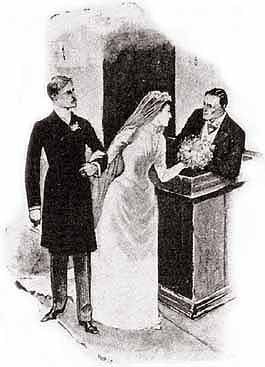
(X) The bride doesn’t reveal this during the wedding, but an hour later she is gone. So legally she was still married, and the new marriage to the nobleman would therefor be nullified - hence the story title of ‘bachelor’, I believe. On Lestrade’s questions about the case, Holmes answers:
“Just one hint to you, Lestrade,” drawled Holmes before his rival vanished; “I will tell you the true solution of the matter. Lady St. Simon is a myth. There is not, and there never has been, any such person.”
This is, more or less, the role I think Mary Watson plays in canon after SIGN; she’s a myth, a heteronormative façade (see reasoning in the first installment of this meta). In fact, I don’t think she ever appears in canon under the name Mary Watson (please correct me if I’m wrong). Now, if Sherlock’s deductions about Mary’s background in HLV would be true (in spite of all the other things about this episode that might be his mere imagination), that Mary Morstan is a false name and she has lied about her background, this would technically also nullify her marriage to John, wouldn’t it? You can hardly marry someone who doesn’t exist. ;)
There’s also a literal hint in TAB that Mary might soon be on the run, just like the bride in NOBL:
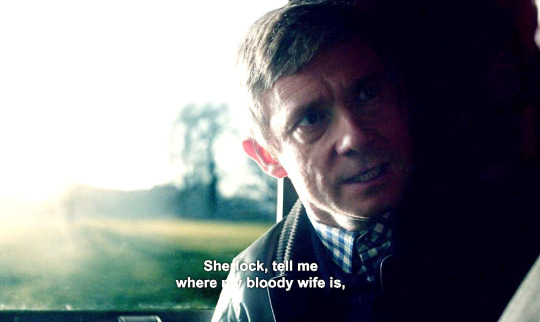
In this scene, in the midst of Sherlock’s Victorian Mind Palace dream, Watson is suddenly dressed as the modern John and seems more angry than worried about Mary’s disappearance. So I can’t help wondering: Does Sherlock foresee this outcome from his subconscious deductions about Mary and the baby?
A possibly vengeful bride
In TSoT we learn more about Martha Hudson’s late husband Frank, when Martha talks to both Sherlock and John separately about how “marriage changes you as a person”. Her marriage was like a “whirlwind” at first, which Martha felt “swept away” by. Her best friend Margaret seemed to have been devastated and left the wedding early. But we also learn that Frank Hudson ran a drug cartel, was sentenced for murder and had several other women, that Martha found out about after they had moved to Florida, USA. Martha was actually relieved when he was arrested for “blowing someone’s head off”. From ASiP we also know that Sherlock was the one who made sure Frank was executed (by lethal injection according to TSoT).
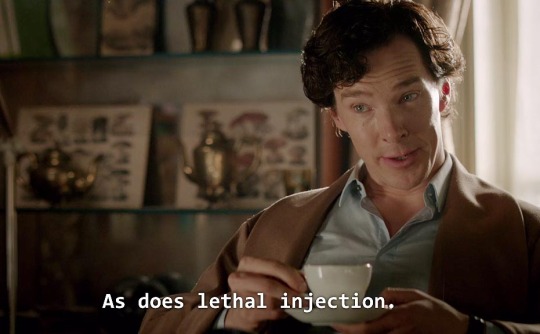
There seems to be something still missing from the plot narrative here, though; in what way was Frank’s death beneficial to Martha? And I can’t help wondering why the Frank Hudson case is even brought to our attention? Why give us these details that don’t quite make logical sense, and then nothing more? And why are we being told, again and again, that “marriage changes you as a person”?
In ACD canon there’s nothing about Mrs Hudson’s husband, as far as I know. There is, however, a sailor named Hudson in The Gloria Scott (GLOR), who comes to blackmail Holmes’ friend Victor Trevor’s father and threaten him with exposing him to public shame and dishonour by revealing his criminal past. Hudson manages to literally frighten Mr Trevor to death. In The Five Orange Pips (FIVE) there’s also a mentioning of someone named Hudson, who is associated with the KKK. So even if Mrs Hudson’s criminal husband in BBC Sherlock is non-canonical, the existence of at least two criminals named Hudson is clearly canon.
Anyway, what has all this to do with Mary? Well, this is very much speculation of course (and not originally my idea; I'm pretty sure someone has posted a theory about it - I just can’t find the reference at the moment. Please alert me if you know who, so I can give proper credits!): What if Mary is Frank Hudson’s daughter and her mother is one of those “other women”? And what if she’s out for some kind of revenge against Sherlock, who made sure her father was killed? After all, the whole Victorian part of TAB - which we know happens in Sherlock’s Mind Palace, where he goes back to solve a case by first solving an older one - is focused on vengeful brides (’Un-Dead’, as it seems - I see you there, Dracula! ;) ). The Emelia Ricoletti case also has clear connections to America.
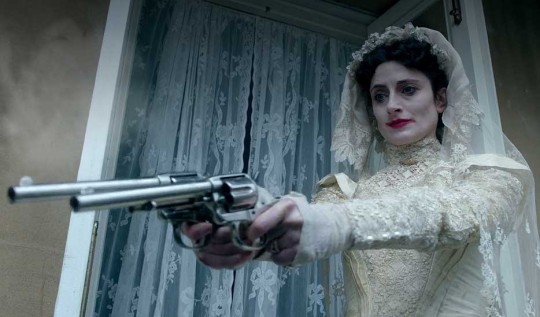
Could Mary have hired a ‘consulting criminal’ (Jim) and got the advise that burning Sherlock’s heart out by marrying John would be the best way to take revenge on him? Or could she even be paid by Jim to fake a marriage?
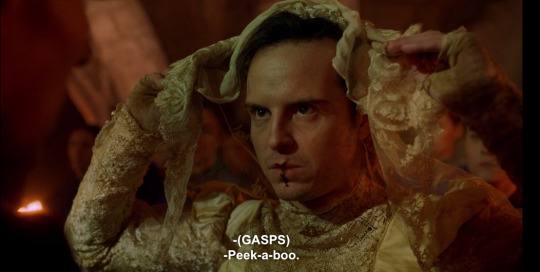
Just speculating, as I said… :)
The revelation at the wedding
One of the strongest arguments for the baby not being John’s is, I think, the scene at the wedding reception in TSoT, where Sherlock deduces Mary’s pregnancy. At the revelation, both John and Mary look terrified, like they’ve seen a ghost or something:
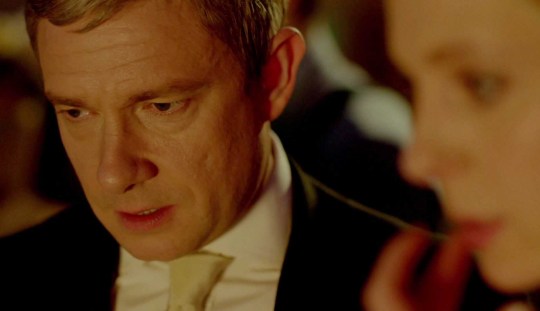
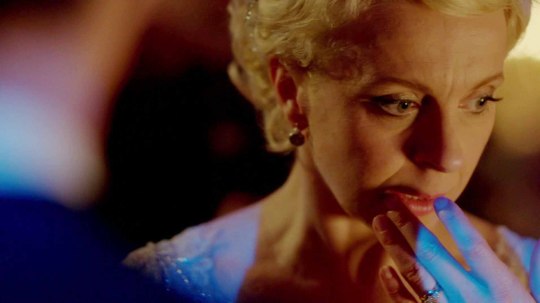
Seeing as these guys had lived together at least for a year, their panic reaction doesn’t quite make sense to me - especially since they’re both trained in medicine! If Mary wasn’t even medically tested yet, why panic? Why would Sherlock’s ‘deduction’ seem more reliable to her than her own knowledge of the matter? After all, she had morning sickness. How many women in this world need a male detective (rather than a doctor) to tell them that they’re pregnant? I think Mary rather looks like someone being caught lying, with dire consequences to expect. John doesn’t expect this and seems totally shocked. Neither of them appears happy about the revelation. I think the sum of the couple’s reactions fits better into a scenario where Mary has been cheating on John, and is therefore not protesting at John’s negative behaviour regarding the pregnancy. But she knows she is (or might be) pregnant and has perhaps tried to hide it to John.
Mary is a smart person, and must definitely know what Sherlock actually means to John. She has seen his grieving for a long time and also witnessed his violent reaction once Sherlock returns. She even teases both John and Sherlock about their obsession with each other. Why isn’t she jealous? How can she go on and marry someone who is clearly in love with someone else, and who actually pays her very little attention in comparison? There’s something fishy there...
And what about John himself? There’s an entry on the blog where John Watson’s deductive reasoning skills seem to reach a new low mark (which is a bit strange, seeing as he has been working together with Sherlock Holmes for years at this point):
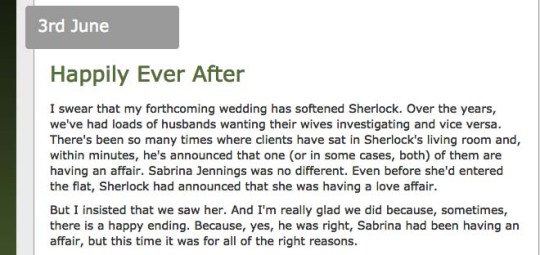

In short: Sherlock helps a same-sex couple to get together by showing one of them a path out of her arranged marriage. This woman has been threatened with exposure; an abusive person who is out for her money has literally blackmailed her to marry a man and choose a heteronormative life. But John’s conclusion is still this: “I swear that my forthcoming wedding has softened Sherlock.” “Naturally, I assumed it was because he saw me and Mary together and just wanted to make someone else happy.” So John is utterly convinced that his own, heterosexual marriage plans are what inspired Sherlock to help this gay couple out of an arranged, heteronormative marriage? Sherlock, who has been against all John’s girlfriends so far and also clearly stated from the beginning that girlfriends are “not really my area”? Good thinking, John -- not! :)))
And still John seems utterly surprised and terrified when his good, happily married heterosexual wife turns out to be pregnant, after living together with him for a year? Hmm...
Why the “why” is more important than the “how”
I’m going to go out on another tangent of speculation here, just to illustrate the extent to which I think heteronormativity increasingly rules this show, but also how I believe Sherlock’s and John’s emotions play into it. Even if Sherlock seems to have no prejudices regarding gay couples (as demonstrated by the blog case above), when it comes to John and him, I believe Sherlock has bought the hetero norm hook, sink and line. And ‘Mary’ is a metaphor for this, becoming more and more blatantly obvious as the show goes on. To Sherlock, she symbolises exactly “what John needs”: an ‘ordinary’ life and marriage with an interesting but ‘ordinary’ woman. But Sherlock’s subconscious is telling him something different about her, which I think he fails to fully recognise, no matter how much psychological evidence his mind collects.
And the main problem is Sherlock’s repression of emotions; this problem is at the same time cause and effect. His unwillingness to show or talk about his emotions towards John makes him appear as a cold-hearted person, mostly called a ‘sociopath’ or ‘psychopath’. Which makes John not want to risk the stigma of coming out, or even recognise his own feelings to himself. Adhering to the hetero norm is much safer, and it allows John to escape from his emotional dilemma in an unsatisfactory and hypocritical way: to marry a woman whom he hardly even knows. Which in turn makes Sherlock believe that John living with a woman is the only reasonable option. And so on and so forth, until eternity. The example below is from TEH, John’s reaction to Sherlock’s return.
JOHN: Now, you let me grieve, hmm? How could you do that?
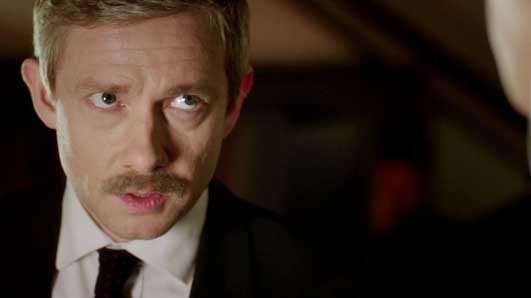
Sherlock doesn’t respond to this, but tries to avert the question by talking about John’s moustache. What could John, in his highly emotional state, possibly make of this? This is where he becomes violent, and Sherlock doesn’t defend himself. John grabs Sherlock and punches him (which is confirmed by his blogpost about this: “He genuinely thought it would be funny to surprise me. I think he was more surprised when I nutted him.”). And it goes on and on:
JOHN: You know, for a genius you can be remarkably thick.
SHERLOCK: What?
JOHN: I don’t care how you faked it, Sherlock. I wanna know why.
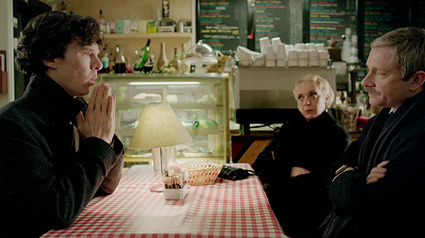
I think John makes it very clear in TEH that - unlike Watson in canon’s EMPT - he is not interested to know how Sherlock survived the Fall. John doesn’t give a rat’s fart about the method he used to fake his own death, neither is he interested in knowing why Sherlock found it necessary to fake his death to Moriarty and his henchmen. But Sherlock doesn’t get this because the question is entirely emotional; John could just as well have asked ”Why did you force me to live without you for two years; why did you abandon me? Don’t you care about me, didn’t you even miss me?”. But he doesn’t ask this out loud, since neither of these guys are honest about their feelings - not even to themselves, as it seems. And apparently it totally escapes John’s conscious mind that Sherlock might have had an emotional reason to come back precisely to interrupt his proposal to someone else.
I suspect (speculation again) that the ‘why’ of John going on to marry Mary after Sherlock’s return was not only about convincing himself that he needed a “normal” life and submitting to the hetero norm because John is closeted. It was at least just as much about punishing Sherlock on an emotional level, letting this ‘sociopath’ know exactly how it feels to be abandoned, not knowing if the other even missed him. It was revenge and punishment in their eternal, on-going game with emotions, where neither of them is letting his guard down to show vulnerability towards the other. But this was probably subconscious and nothing John would freely admit to. Consciously, this arrangement allowed John to simply register that Sherlock apparently was fairly OK with things, since he even went on to organize John’s wedding. Thus, John could reason, his feelings for Sherlock couldn’t be requited anyway.
I also suspect, however, that the concept of ’Mary’, as we see this character from HLV and onwards, is Sherlock’s way of punishing himself for abandoning John. The wedding planning and the ‘vow’ in TSoT, in my view, was a very special sort of self-harm, where Sherlock tried to sacrifice himself to pay off his emotional debt for having hurt John, by doing his utmost for John to be happy with his choice.
But apparently this wasn’t enough, so when ‘Mary’ shoots Sherlock in HLV, even this is (supposedly) Sherlock’s own fault. I think ‘Mary’s shooting Sherlock symbolises the blow to the heart that Sherlock received on the wedding. But why was this a ‘blow’, one might ask, if Sherlock himself was prepared for the marriage and even helped planning the wedding? Well, there was a second blow on the wedding reception, wasn’t it? (Just as there were two murder attempts depicted in TSoT; one before the wedding and another during the wedding reception). The second blow was when Sherlock deduced Mary’s pregnancy. Because a child would most probably cement John’s relationship with Mary forever. Not only would the baby’s presence be an obstacle for John spending any time with Sherlock; it would also erase any attempt from Sherlock to confess his feelings to John in the future, since it would make him guilty of disrupting a family involving a third, innocent little person.
Mary definitely works as an internalised hetero norm. In his own view, Sherlock has no value, and he doesn’t deserve John. Thus, ’Mary’ is needed to keep John happy, and comes back to haunt Sherlock’s mind, even after she’s (supposedly) dead. No matter what atrocities she commits, ’Mary’ is always excused by Sherlock. In many ways, she’s the new ’Sherlock’: solving crimes, being passionate, leading John into adventures, using disguises, speaking (supposed) words of wisdom and even dressing like Sherlock. She fills in an empty space that Sherlock refuses to fill in himself, because a) he doesn’t consider himself worthy and b) he wants to avoid ‘Sentiment’. Instead of facing reality and try to do something about it, Sherlock tries to have a place in John’s life through ‘Mary’ and other invented avatars.
I think John makes it clear on his blog that he does not intend to forgive Sherlock any time soon: “Turns out he’d faked his death because Moriarty had threatened those close to him. Including me. He’d gone into hiding, happy to leave me and everyone else thinking he was dead. He’d done it to save us but he hadn’t trusted us enough to tell us what was really going on. Not sure I’ll ever truly forgive him for that but as the saying goes, life goes on.”
But then he’s back to talking about the cases and his own motivation to keep his friend after all: “So I ignored him and got on with my life. But God, it was dull. I knew he was back. I knew that he was out there having the time of his life and I was… working”. The image John gives is actually that he keeps hanging out with this ’sociopath’ for the sole reason that he can’t resist the danger, the ’thrill of the chase’. In other words; Sherlock seems to be right in HLV when he claims John to be a sort of adrenaline junkie who craves danger and therefore needs a dangerous wife (to replace Sherlock, who is not good for him because he’s a real junkie and a man to boot, but he doesn’t say this).
John’s ’deeper’ question of why rather than how in TEH (which doesn’t apply to Sherlock’s supposedly ’scientific’ world view where emotions always are a problem risking to bias his conclusions) has its complete repetition in TLD. Once again Sherlock tries to convince John that he can predict the future. Sherlock expects to impress John with the explanation of how:

JOHN: How did you know?
In fact, I think a great deal of what we see in TLD is Sherlock’s mental repetitions of what happened between him and John after his ‘return from the dead’ in TEH. However, in TLD (as in all the episodes from S3 and onwards) John is not impressed by Sherlock’s intellectual shenanigans; he hasn’t seemed to be for a long time, but especially not after the treason Fall. In TLD John may have started by asking “how”, but in the end he just wants to know why Sherlock has lured him to come to his rescue when he’s in trouble.

JOHN: Never mind how. He’s dying to tell us that. I want to know why.
Sherlock tries to explain that he needs John’s help with a case because he ‘can’t do it alone’. But John doesn’t buy it this time either; his disbelief and judgment of Sherlock is even harder and more emphasised than in TEH. And this is, i believe, the key question; to answer it honestly Sherlock has to talk about his feelings, show his emotional vulnerability. Which he still isn’t ready for. So this is why ‘Mary’ and 'Rosie’ keep popping up until the end of TFP; they stand for Sherlock’s heteronormative alibi to avoid talking about feelings. Even if Sherlock comes a long way with hugging John in TLD and hugging Eurus in TFP - basically to comfort them - he still hasn’t told anybody about his own feelings, has he?
Sherlock ’had chips’ with ’Faith’. (Dinner!) But we never see him eat anything, he just goes on impressing Faith by telling her about how his deductions about her private life work. It’s the scientific ”how” rather than the more emotional ”why”.
I’ve also been wondering about Mary’s traveling around the world in TST, ’on the role of a dice’ when she learns that Ajay is after her. This is the cold assassin who tried to kill Sherlock and lied to her husband about her background, and yet she is suddenly ”moving the target away” from John - why? In HLV Mary claimed that the truth would break John and therefore he could never know that she lied to him. What’s actually going on here? To me this seems more like Sherlock trying to justify to himself his own fake suicide and his following absence for two years in order to ’protect John’ from Moriarty’s network. The whole ‘Mary-the-hero’ plot line is an indulgence in Sentiment, complete with self-sacrifice and a tearful self-absolving note. But this over-romanticized scenario gives Sherlock no satisfaction, since it ends with John’s grief and sorrow and alienation. Conclusive discovery: escape is no solution; it just postpones the problem.
OK, this has been a looong meta, and a bit speculative. For the finish, I’d just like to summarise a bit about Hypothesis #8 and why I suspect that John is not the father of Mary’s baby. Here’s my TL;DR:
John wasn’t even aware on the wedding that Mary might be pregnant - and he’s a ‘bloody doctor’!
None of them seems happy when Sherlock deduces Mary’s pregnancy; Mary appears shocked that he noticed it and John seems shocked before the unexpected task of fathering a child
Their relationship doesn’t strike me as honest and genuine on either side; they’re not really into each other
Mary is a liar who conceals her background to John
It’s suspicious (but also canon consistent) that Mary encourages John to spend a lot of time with someone she should know that he’s in love with; why would she want to start a family with such a guy?
David seems to remain too close to Mary for being an ordinary ‘ex’; he might actually be the father of the baby!
The Watsons have no children in canon
Rosie in S4 doesn’t strike me as a real character (Mary’s pregnancy in S3 might still be ‘real’, though)
The whole concept of John’s wife is a heteronormative façade (which goes for canon as well); why then would John’s fatherhood be real?
And, finally, just one more thing that occurs to me:
The baby is a perfect plot device to keep John and Mary together in a modern time when divorce is common, and also to keep Sherlock guilt-ridden about confessing his feelings. A revelation that John is not the father would likely mean a breakup of the couple, with the possibilities that this would open for the ‘Johnlock’ option. ;)
Thanks for bearing with me in meta-marathon, and Happy New Decade! :)
Tagging some people who might be interested: @raggedyblue @ebaeschnbliah @sarahthecoat @gosherlocked @loveismyrevolution @sagestreet @thepersianslipper @tjlcisthenewsexy @elldotsee @88thparallel @sherlock-overflow-error @yeah-oh-shit
25 notes
·
View notes
Text
Sherlock Fic Recs (mostly lesser-known)
All right, I’ve recommended individual fics from time to time,and I certainly reblog fic rec lists, but this is the first time I’ve tried to assemble a Sherlock rec list of my own. I’m trying to select stories I’ve not seen often (or ever) on other lists for this, and they are in no particular order. Mind the tags. Nearly all are end-game Johnlock, although a couple are more gen.
Since this is my first time writing a fic rec list, please let me know if you enjoyed it.
A Telling Touch - by MikayoToudaiji, 91K, E, Sherlock Holmes/John Watson
Post-Reichenbach. After Sherlock’s death, John manages to get himself re-enlisted and is sent back to war. But when two series of gruesome murders link home and outland together, John is suddenly faced with more battles than he could have imagined. A Reunion, multi-chapter, case fic.
This is one of my go-to fics. John is grieving the loss of Sherlock and back in the army, this time in Syria, courtesy of Mycroft, when he is called home due to the mysterious death of Irene Adler. Irene was the latest victim of a serial killer, but she has managed to leave John a mysterious message. Sherlock does eventually return, but badly injured. There’s a fascinating case fic, a very different and totally platonic Mary Morstan, Sebastian Moran makes an appearance, and a Mummy Holmes who’s absolutely lovely. I find this story so emotionally rewarding, on many levels.
Follow My Voice - by flawedamythyst, 9K, T, Sherlock Holmes/John Watson
Sherlock's voice is all John has.
John is in a coma, and his only link back to the world is Sherlock’s voice. Told mostly from John’s perspective, the payoff when John finally wakes up is lovely.
Meeting Clara - by BlueSkye12, 2K, G, no pairings (pre-Johnlock, perhaps, if you squint)
John and Sherlock have a chance meeting with John's former sister-in-law and Sherlock learns a thing or two about John's return from Afghanistan.
Sherlock learns exactly how much damage John suffered from the bullet that brought him to London and that fateful meeting at St. Bart’s. Clara is very protective of John, even if he’s no longer her brother-in-law.
Bitter Sweet - by distantstarlight, 17K, E, Sherlock Holmes/John Watson
Alpha John Watson is a retired army doctor with a chance to acquire an omega mate. He meets the most unusual omega he’s ever encountered.
A somewhat unusual take on A/B/O dynamics, where alphas need to have a use in life, either with a satisfactory career or as a parent to the next generation. Omegas, including Sherlock, are bought at auction, which some may find disturbing, but there’s no indications of maltreatment on anyone’s part. It’s Sherlock who has all the power in this relationship, although he’s deleted the reasons why. John may have to pay the price for that.
The Art of Seduction series - by flawedamythyst, 97K across 6 works, T to E, Sherlock Holmes/John Watson, Sherlock Holmes/Jim Moriarty, Sherlock Holmes/many OMCs, John Watson/OMC, Mycroft Holmes/Greg Lestrade
Sherlock ran a website called The Science Of Seduction, on which he gave advice on the best ways to get laid, wrote blog entries detailing the results of his various sexual 'experiments' and generally contributed to the stereotype of 'every gay man is a sex-mad playboy'. John avoided the thing like the plague.
AU in which Sherlock treats sex like he does crime in canon. Inspired by Queer As Folk UK, but it very quickly went its own way.
I love this series. Sherlock is obsessed, not with crime, but with sex. John is his flatmate and pretty much the only gay man in London with whom Sherlock has not slept. John pines, Sherlock sleeps with most of gay London, and they all go dancing every weekend. Then Jim shows up and ruins everything. Or does he?
Semper Fidelis - by Blind_Author, 57K, M, Sherlock Holmes/John Watson, Mycroft Holmes/Anthea
Written for a prompt. Moriarty frames John and "Anthea" of betrayals which cause both of the Holmes brothers to cut them off. Cue BAMF!John and BAMF!"Anthea" doing their best to clear their names.
John and Anthea go on the run after they are both framed the same day. They protect one another and bond over the idiocy of their respective Holmeses. Both are in established, if hidden, relationships. They bond while on the run.
Evidence of Human Life - by thesardine, 17K, E, Sherlock Holmes/John Watson
Sherlock's sanity deteriorates while he and John are stranded on a deserted island.
I basically summed this up in my personal bookmark as: Sherlock and John on a deserted island. They hunt seals, Sherlock periodically goes nuts, and they start having sex.
This Doesn’t Feel Like Falling - by Dark3Star, 148K, E, Sherlock Holmes/John Watson, pre Mycroft Holmes/Greg Lestrade
When he fell from St. Barts, Sherlock knew he loved John Watson. John couldn't love him back (or so he thinks). Now that he's back from the dead things are back to normal... sort of. When a serial killer targets increasingly high profile gay couples Sherlock is on the case. With a, possibly ill-advised, plan Sherlock and John go undercover as a couple to uncover the truth.
Part 1 of a series, although this is by far the largest part. Your classic “married for a case” trope, taken to the extreme. There’s a decent case fic, a lot of mutual pining, and some interesting wedding planning. Heed the warnings, there are some pretty graphic depictions of violence when they finally confront the murderer.
The Secret Identity of John Watson - by scifigrl47, 27K, G, John Watson/OFC (but don’t let that scare you!)
Taken out of context, John Watson leads a terrifying life. You have to wonder what those poor women he dates thinks of it, especially if John decides to try keeping one away from Sherlock, and Sherlock decides that it'd be best if he could get rid of her. After all, Mycroft's taught him a thing or two about removing potential 'problems.'
Told from the point of view of the bank girl John saves and then dates. Guys, I am a total Johnlock shipper, and so is everyone else in this crack-fest, although they aren’t actually together. Samantha and her girlfriends are an absolute riot, and their impressions of both John and Sherlock are hysterical.
Small Steps - by crossroadrain, 16K, unrated, Sherlock Holmes/John Watson
"It's John's birthday and all his army buddies have got him a prostitute for a laugh.
A/B/O fic, where Sherlock is an unwilling omega stripper hired to entertain for John’s birthday get-together with a bunch of his army buddies. When John takes him aside to protect him from his army buddies, he learns something more is going on. The writing is a little uneven, because the writer is not a native English speaker, but the story is quite good.
Endings - by Purple_Slippers_18, 3K, T, Sherlock Holmes/John Watson
Fifty years. Eighteen thousand two hundred and sixty two days. It was a long time to be alive, never mind the thirty-four years Sherlock had breathed before he'd met John, which the man in question most certainly did not. As far as Sherlock was concerned, his life – the one whose memories he hoarded like a dragon protecting caverns of stolen gold – began on that serendipitous January afternoon when two strangers met in the research labs at St. Bart's.
Not for those who can’t deal with MCD or find assisted suicide disturbing, but they’re so in love here. Retirement!Lock.
Body Language - by CeruleanDarkangelis,2K, T Sherlock Holmes/John Watson
There is a language to dancing; a call-and-response from one body to another. Even with the poncy kind of dancing I knew he was versed in, the kind that requires classes and counting and rules, there is communication between bodies. Watching him now, I’m more than pleased to discover that he understands my dialect as well.
This is just 2K of absolutely hot dancing seduction. There’s a follow-up fic, Touch Me, about what happens when they get home
Blind series - by inspiration_assaulted, 19K across 3 works, G to T, Sherlock Holmes/John Watson
Lt John Watson, 25, will do just about anything to stay in the Army, even if it means marrying a man he's never met. It's only for two years, and he'll probably be in Afghanistan the whole time. How much can his life really change?
Mycroft arranges a marriage between Sherlock and John, allowing John to stay in the army and Sherlock to pay for rehab. They write each other letters, but have never met. I originally read this story on FF.net and loved it. I was delighted to find it on AO3, which is easier on my eyes.
Words of One Syllable and At A Loss- GwendolynnFiction, 101K across 2 works on FF.net, M, Sherlock Holmes/John Watson
The landmine at Baskerville leaves Sherlock deafened. Unable to stand living without his friend John agrees to learn to sign, but foreign languages cannot be learned in a void. Sherlock helps John learn to sign by finally learning to talk to him.
This was one of my early favorites when I first started reading Sherlock stories on fanfiction.net. The author has slightly different versions up on AO3, but I find these much more enjoyable, as their relationship just seems to work better. The followup story is what happens during the Moriarty trial and after the fall, when Sherlock has to return unexpectedly after John goes missing.
The Otter and the Hedgehog - by Trinity Fire, 23K on FF.net, T, Sherlock Holmes/John Watson, Mycroft Holmes/Greg Lestrade.
Just when John and Sherlock think they have time to rest after a case, they get an unexpected surprise... Unexpected, yes, and fluffy!
This is a little uneven, and has a very awkward, very weird self-insert OC, but Sherlock the otter wandering around the flat tucking John the hedgehog into his scarf to carry him everywhere is just too cute!
Letters to a Soldier - by Pakmai, 70K on FF.net, T, Sherlock Holmes/John Watson
Captain John Watson is a soldier in Afghanistan. Sherlock Holmes has just been admitted to a drug rehab facility, assigned to write a letter to an unknown soldier. He doesn't expect to get a letter back from someone as interesting as John. John doesn't expect to get letter from a recovering drug addict. Together they form an unlikely friendship through letters.
I’ll admit, it’s been a while since I read this one, but this series turned me into a big fan of epistolary fics. The follow-up fic, Letters to a High-Functioning Sociopath, finished after I’d stopped reading regularly on FF, so I admit I don’t know how the series ended.
Flare - by iMusicalMinji, 6K on FF.net, T, Sherlock Holmes/John Watson
John has a lot to learn about an elusive species when he ends up living with one. Like how he doesn't have to change under a full moon, how he is fireproof even if he cannot breathe fire himself, and how he loves the doctor. MythicalCreature!AU
A sweet dragon!Lock story, with some parental elements. Sherlock’s hoard made me laugh, and then I thought about it and it made sense.
127 notes
·
View notes
Text
Can things even get more heteronormative than shipping Sherlock Holmes with Irene Adler instead of John Watson?
I mean, Moftiss fucked up pretty badly by making a confirmed lesbian fall in love with their male lead character, so people are kind of inclined to follow that notion... But why, why, was that an option for so many adaptations at all? Just because she is one of the few women even mentioned by name. AND OF COURSE, THERE HAS TO BE A FEMALE LOVE INTEREST, RIGHT?!
In the books, it’s right there: It’s stated blatantly clear that Holmes did NOT feel anything akin to love for Adler. She is just the cleverest woman he has ever met (because women, in general, are incredibly stupid except for her... right) and he is intrigued by her cunning and intellect. She is just the woman, the only one of her sex to ever be his worthy opponent. He doesn’t give a flying fuck about her getting married to another man.
But when Watson announces his engagement to Mary Morstan Sherlock Holmes reacts by literally being like: “Well, then all I can do is take drugs.”
And that is even one of the least telling interactions between them.
If the genders were switched, you know exactly which romance would be canon.
#Sherlock Holmes#Johnlock is real#Irene Adler#Sherlock BBC#JOHNLOCK IS ENDGAME#John Watson#Sherlock Holmes loves John Watson#a study in scarlet#a scandal in bohemia#a scandal in belgravia#heteronormativity
28 notes
·
View notes
Text
somewhere in my drafts ive like an essay length dissection of why the basil rathbone sherlock holmes films are the only good ones (to my knowledge-- ive missed some of the mid 20th century adaptations which i can imagine liking bc id say theyre more by the book [lol] which i appreciate in an ‘if its not broke dont fix it’ way)... well actually it starts out abt how interesting the particular shape of misogyny is in the golden age of detective fiction considering how the major writers were women + then i started talking abt the specter of female intelligence in tht genre + how reviled smart women were, very in line w/ like lombrosian ideals of female criminality, + how thats still going on today + how this is particularly shown by how many modern sherlock holmes adaptations make irene adler evil (elementary even made it so her + moriarty were the same person which was the height of fucking insult) even tho she was like demonstrably categorically Good in the original story she appeared in + actually one of the main purposes of her character was to highlight the moral ambiguity of holmes by contrasting him w/ her indisputable goodness (which happened to co-exist w/ her incredible intelligence). + then i went on a more general rant abt how the reduction of holmes to a caricature has allowed for the grossest insults to canon in so many of the adaptations which are all shit + an insult to holmes’s legacy before outlining why i love basil rathbones versions so much which is actually not sth i have the most reason for like its definitely coloured by nostalgia to an extent but its certainly better than any of the contemporary ones i can think of. anyway i jst remembered that draft + i dont have the energy to find it again or rewrite it but im suddenly filled w/ the same frustration that motivated me to write it in the first place. so
4 notes
·
View notes
Note
so, I just watched the very first episode of The Adventures of Sherlock Holmes (and I loved it) and I would like to ask you a question as your fanfiction reader. How would you portrayed Irene Adler had you planned to write that character into your stories? Would Sherlock and Irene met under the canon circumstances in your version? Would it be a woman at all, granted Sherlock is a woman as well.
omg i’m so honored to have recieved this??? oH hONEY she would DEFINETELY be a woman. I’m a gal’s gal, and i would take any opportunity i get to portray realistic and diverse interactions between women, and Irene and Sherlock present me with an exquisite dynamic we rarely get to see in media: Respectful rivalry. The media is so keen on making us these shallow creatures that hate one another based on superficial reasons (boys), that I would love to see a real mental play, a power play, between two genius women who above all respect each other and push each other to the extreme of their genius. I’d keep her really close to OG Irene: A brilliant woman- OG Irene was sort of proto-feminist character after all- that “““threatens””“ the wrong person: The son of a bigass company owner or a member of high social/political circles. Irene would be a beautiful woman who knows she holds that power and is not ashamed to use it, damnit. She also needs to make canon society uncomfortable, as OG Irene did. So she’d mess with the high and mighty, the powerful, because she serves one interest and that’s her own. And her insterest is to, not only elope with her scandalous love (a girlfriend), but to also help the world in any way she can. And she can do that using her power to gain secrets, and those secrets to collect what is due to the people.
So she has cost the high and mighty horrendous amounts of money and power. She’s manipulative as she’s pretty, but most of all: She. Is. Damn. Smart. That’s how she plays them. So:
We’d start with a nice fellow, a young promise, a prodigy of sorts. A man with education, drive and potential, whose little misstep lead him to be blackmailed for this “bad woman”, this sort of “femme fatale/temptress/seductress” character. He’s heard of Sherlock by the big man in charge of the police and would like to catch this woman and retrieve the “compromising document” she has on him.
So we start chasing your typical femme fatale, only for her not to be found anywhere. We start learning that her doings prevented some major injustices from happening, we also learn that- blackmailing aside- the people acusing her know nothing of her, can’t even give a physical description as she changed her appereance. Sherlock starts getting suspicious.
At the same time, a very sweet lady in a cat café gives Sherlock some pretty good insight on this “irene” character, she seems to have at least spoken to her once. She also offers good coffee and good conversation. Sherlock leaves to follow the lead she gave her, and does not find her when she returns. That’s Irene’s first appereance.
So Sherlock starts to pay attention the more she chases Irene’s trail, the more dead ends she meets, she realises she’s being teased. Like a game of hide and seek from hell, so Sherlock changes her strategy: She starts treating Irene no like an archetype, but as a brilliant woman, like herself.
They play, they chase, they meet. Upon seeing one another as they are is all congratulations for a game well played, Sherlock knows she has to catch her, but she feels inmense respect for Irene at the same time. Irene knows she needs to run and deliver her charge, but she’s having so much fun. Wato meets Irene’s “““assistant”“” (her GF) and has some helpful insight of her own.
Sherlock finds herself conflicted: She’s being tasked to find Irene and retrieve the document, that’s her reputation and honor at stake. YET, she does not want Irene to lose. We know more of this good fellow she offended and now Sherlock knows he deserved to be stopped, Irene is a roge bullet that always hits the target she needs and harms no one else.
Wato sees right through her- and gets jealous bc this is gay fellas- and calls Sherlock out on not doing all she can to trap this criminal. They have a great discussion about criminality and justice.
But Sherlock has also been spotted by Reimon, who believes that criminal acts such as Irene’s can’t go unpunished, so Sherlock does give it her all, swearing to herself that this is the last time she will try, and if Irene scapes, she will not persecute her.
She traps Irene while her lover is waiting for her on a jet sent by a red of vigilantes that gave Irene assylum. More great discussion, more girly rivalry, they aknowlege each other and Irene explains her motives: How the good fellow had a career sustained on providing the higher circles with ya know- people- and how she has the means to prove it, she shows it to Sherlock and explains how she plans on destroying him and his career to prevent him, and people like him, rising to power.
In the original, Irene beats Holmes on his own game, but I like sorority and I like games, so while Sherlock is distracted by Irene’s evidence, she pulls one last stunt that manages to allow her scape.
Sherlock realises right on time, but keeps the evidence and decides to do nothing, later arguing that she was incapacitated due to *insert weird but probable reason* and could not catch it.
She does return the document to the “good fella”, who destroys it. Wato questions it because he was a ruin man who did not deserve their help.
Cut to a week later, we see the young politician announcing his permanent retirement from politics. We also learn he’s been donating parts of his fortune to several charities while he stares angrily and a picture on his phone.
While he’s signing the money away, we see Irene Adler kissing her girlfriend in some remote part of the world, the original document on her table.
Cut to Sherlock smiling while she drinks tea.
#watolock#miss sherlock#irene adler#acd#irene adler is the chaotic good/neutral feminist antihero we deserve
48 notes
·
View notes
Text
Why BBC Sherlock was ruined by bad writing - Part 1
This post is a part of a long summary of some of the problems with BBC Sherlock which in my opinion ultimately caused the show damage which seems practically irreparable now.
One of the related problems actually is that it seems Moffat and Gatiss didn’t get why S4 was met with disdain by fanbase, why reviewers picked it apart, why ratings dropped. It means they don’t want to learn from their mistakes or simply can’t. In fact Gatiss outright refused to believe ratings dropped and that does speak about very huge denial as ratings are facts, not opinions. Both Moffat and Gatiss also suddenly lost enthusiasm about ACD, Sherlock Holmes, although they were gushing about it just not so long ago.
But let’s get back to the problems of the writing I wanted to talk about:
1) The problem with Moriarty

Looking back at first two seasons after clusterfuck of S4, sadly, I could now notice some problems which were already planted in earlier seasons. While S1-2 were the best out of the show some decisions which were made by the writers indicated their true approach to the material even back then. But these problems would only grow like a snow ball and in the end would contribute to the undoing of the show in many ways. Mofftiss were overusing Moriarty from the start.
In ACD’s canon he appears in one story (and is mentioned several times) like the nemesis to take down Sherlock once and for all. Since it’s TV series it was perfectly understandable and fair to expand the role of Moriarty, however it was way overexpanded. Moriarty was connected with the cabby, was behind Chinese mafia, then arranged the whole Great Game with Sherlock and then meeting with him in person took place-all in the scope of all 3 episodes of S1. Had the S1 been longer perhaps it wouldn’t have looked so jam-packed with Moriarty and would have been more subtle, but since the S1 is only 3 episodes long it did. S1 also told us that Moriarty killed the school boy, the only case which young Sherlock was not able to solve then, thus setting up Moriarty as this ultimate enemy of Sherlock literally for decades. Then in Ep1S2 we find out that Irene Adler was also working for Moriarty and that he consulted her. Ep2S2 has Sherlock having hallucinations about Moriarty and Ep3S3 have the grand finale where Moriarty tries to destroy Sherlock and kills himself on the roof, and then Sherlock jumps from the roof, faking his suicide.
Honestly by the end of S2 Moriarty was made by the Mofftiss as this be-all and the end-all guy and that already looked over the top. But it still could have been ok, if the Mofftiss could stop there with Moriarty. And that’s exactly what they couldn’t do. They didn’t know how to stop and so they ran this character into the ground. S3 teased us if Moriarty really died or not, with “shocking cliffhanger” final, adding more hallucinations and flashbacks and fake flashbacks with Jim along the way. But the result was that by the end of S3 Moriarty no longer looked liked some threatening dangerous villain, but rather as a self-caricature. S3 also told us that Moriarty had in fact a death wish and that he would have killed himself anyway, making his whole suicide on the roof pretty weak. Instead of some diabolically clever villain with diabolically bold clever calculated plan, we got the guy who just was crazy and wanted to off himself. Big whoop.
It got only worse when TAB special was literally dedicated to Sherlock trying to understand that Moriarty, who shot himself standing right in front of Sherlock in broad daylight, was actually really dead. No shit, Sherlock. Moriarty was again present in Sherlock’s Mind Palace, grimacing all the way, which probably was supposed to look cool and edgy, but didn’t, and looked like a tired rehash.
Then S4 finally completely killed any coolness or sense which Moriarty still had in the show (and there wasn’t much left by the time). S4 told us how Moriarty met with secret super powerful sister Eurus, spent 5 minutes talking with her or smh and even teamed with her, recording some dumb edgy videos for Eurus, which she used when Moriarty himself was already dead. Since Eurus is capable to hypnotize people after talking with them the question was left open if Moriarty was really compromised by Eurus and was just her puppet since then.
Either way Moriarty was pretty much destroyed as interesting and effective villain in the show, because a) he either was hypnotized by Eurus, made into her puppet and lost any personal agenda or free will since then; or b) he wasn’t hypnotized by Eurus, remained himself but was just really unhinged, mad dude, whose unpredictability didn’t seem like a result of his great intellect or scheming or an act, but rather a result of him being a psycho, who wanted badly to kill himself, also hoping that Sherlock would ~ probably~ kill himself as well—and if Sherlock doesn’t kill himself, hey, no biggie, he got those great choo-choo videos for Eurus which she could use against Sherlock, though Moriarty wouldn’t be able to see this anyway, because he will be dead by then. But surely choo-choo videos will work! Surely the world's only consulting criminal could always count on choo-choo videos! Great plan!
2) The problem with women

I already talked once about how Mofftiss treat female characters on the shows and the short answer is: they treat them pretty awful as they pretend to write “strong female characters” while basically doing “Feminism for Dummies: The Male Edition”.
According to Mofftiss strong female characters mean mostly villainous, dubious, criminal, weaponized psychopaths.
---Irene Adler – twisted rewritten version of ACD’s Irene Adler, here villainized cruel sex worker and blackmailer, who is told what to do by male villain, because she can’t figure it out on her own, loses to Sherlock because she fell for him and later is saved by him. Moffat literally described Irene as psychopath, in fact he describes Sherlock as one as well, saying: ”He's a psychopath, so is she”.
Moffat also considers ACD’s Irene boring, saying:
“In the original, Irene Adler's victory over Sherlock Holmes was to move house and run away with her husband. That's not a feminist victory."
Moffat is a very big fan of ACD’s stories according to Moffat. No comments here.
---Eurus “Ebony Dark'ness Dementia” Holmes – OC, secret sister genius with super powers, who killed a child while she herself was a child, tortured her brother Sherlock and has been put to medical facility- prison for life (where she continued to torture and kill people, and even rape them-well, there was one case at least. She also was able to leave prison at her will and kill people outside). A total psycopath, who fixed her multi-talents on playing some evil games with Sherlock. Turned out to be so, so very needy, that the only thing she really wants is a hug from Sherlock, cause she loses the minute he hugs her. Obviously Mofftiss tried to build her as this greatest villain on the show who ever villain, but it didn’t work out.
--Mary Watson – practically an OC, since Mofftiss so heavily rewrote her, that she doesn’t resemble Mary Morstan from ACD’s canon. Even her real name is not really Mary Morstan here, she borrowed it from the grave slab of another person. She is ex-assassin who was murdering people for cash, but retired now, who lies and hides her past from everybody, then she shoots Sherlock almost killing him for good, in order to cover up the fact that she came to kill her blackmailer and Sherlock discovered her. Then Mofftiss make a big point that her main agenda in show is really a new life with a husband she loves and their baby (Mary shoots Sherlock while already being pregnant). Then Mary leaves her husband and little baby girl (the girl given to Mary by Mofftiss in the show, she doesn’t exist in ACD’s canon) when somebody hunts her ex-fellow assassins (yep, they still out there or some of them). Then she is tracked down and returns, but then she is killed off because she jumped in front of the bullet meant for Sherlock leaving her baby girl without the mother and her husband as widower. Bye bye Mary’s agenda, it has been destroyed. (Also what an insult to professional mercenary getting killed by some institutional secretary, honestly). Then it turns out Mary recorded some weird ass DVDs which are now regularly sent to Sherlock and John, and while she makes some kitch speeches there she barely remembers about existence of her baby daughter, if at all. In the process we find out that John, while Mary was still alive, was already heavily flirting with another woman (it was Eurus “Ebony Dark'ness” in disguise) and really wanted to cheat on Mary. Oh, and Amanda Abbington herself described Mary as psychopath.
--A small shout out to those Victorian ladies from TAB’s Mind Palace - they formed a secret sect in order to kill men, had creepy secret meetings and basically were an underground murder club on the loose, even were referred to as “league of furies” at one point. Oh look, women are again portrayed as vile, criminal and agressive entities, with attached aesthetic of KKK. Straw feminism is strong with these ones.
--Ok, let’s remember Molly Hooper, she is not a psychopath, she is not villainous, she is not a criminal, she is a nice, smart, normal, kind young working woman. At long last something different, right? Real potential? Ehm, nope, Mofftiss still ruined it. Because she is kept in the show as a female character with a deep desperate unrequired crush on Sherlock who is ready to do a lot for him, but repeatedly mistreated by the object of her affections. Sherlock humiliates, manipulates and abuses her emotionally several times during the show, when it gets better between them, but Mofftiss make sure that poor Molly still can’t have personal life outside of Sherlock, her new BF/fiance Tom ins S3 is a poor copy of Sherlock, he even dresses like him (probably it was done for laughs in the show “ha ha, poor Molly, got replacement goldfish, can’t really move on” only it wasn’t really funny), but they broke up by the end of S3. Then Molly is pushed aside for most of S4, and then there is that famous “I love you” scene, which deeply hurts Molly and makes her cry.....the scene, which according to Mofftiss was a last-minute addition to the script and was not about Molly or her relationships with Sherlock at all, but only about Sherlock and his emotional development and how he is more human now. Molly was simply used by Mofftiss as show-case of Sherlock’s manpain. There was no resolution to this scene and Moffat simply said that Molly would get over it, by having a drink and shagging someone. That’s...deep. Not.
It really makes you wonder what’s Mofftiss’s problem with women and why writing for female characters on the show is such a trainwreck?
Well, according to Moffat:
--“The original [Sir Arthur Conan Doyle] stories had a huge female following, which I'd never forgotten, and that's because the Victorian ladies liked the way Sherlock looked. (Laughs.) So I thought, use this massively exciting, rather handsome man who could see right through your heart and have no interest ... of course, he's going to be a sex god! I think we pitched that character right. I think our female fan base all believe that they'll be the one to melt that glacier. They're all wrong -- nothing will melt that glacier.”
--"Women are needy. Women are out there hunting for husbands."
Also his understanding of pregnancy and motherhood “Your wife turns into a boat, and shortly after that, you never sleep again and you clean shit off someone. It doesn’t seem like a very appealing prospect”.
Also the infamous “There’s a huge, unfortunate lack of respect for anything male.”
I guess all of it sort of explains why Mofftiss write women that way.
To be continued...
#sherlock#bbc sherlock#sherlock holmes#sherlock season 4#eurus holmes#moriarty#irene adler#john watson#molly hooper#mary morstan#mary watson
45 notes
·
View notes
Text
Sherlock and the Female Gaze
If anyone asked me to point them to the most revolutionary piece of media ever created I’d probably show them Doctor Who (because guys - nothing beats a show that is basically Sherlock Holmes in space and keeps reinventing itself every other year).
But the second thing would be Sherlock. Not Doyle’s original, not the Rathbone, Granada, Soviet, new Russian adaptations (even though they are dear to me). Just 13 episodes of a TV show that was only ever meant to win some obscure film award in Eastern Europe and became a success over night instead.
The fandom that does its research has spent seven years trying to pinpoint its secret and the only thing we can agree on are three little words: it looks pretty.
On a more serious note: it is probably the first thing which made male eye-candy unashamedly mainstream. It is the millennial version of Pride and Prejudice, of Mr. Darcy, only that this time society doesn’t expect the story to bore our boyfriends to death.
And I’m not even sure that was something Mofftiss and Co were aiming for.
You see. It is a truth universally acknowledged that men have no idea what women like. They confuse it with male power fantasies ALL THE TIME because that’s what the media tells them we are day dreaming about. They are shocked to learn that we think Loki to be the sexually most appealing hero villain in the Avangers, that we consider Rodger from the original 101 Dalmatians to be perfect boyfriend material, that yes, we’d happily choose a dog loving, kind individual (with great hair) over most more manly super heroes out there.
And Sherlock ticks all the right boxes for women to find him attractive, while most guys wouldn’t think that lanky nerd to be much of a competition for them.
The cherry on our metaphorical fandom-cake is that Sherlock is pretty much the first thing produced for a main stream audience I know of* which treats its leading male character as if he was a woman in order to cater to the female gaze (because the lgbqt+ community was not the only reason why the name Cumberbatch has showed up on most versions of the sexiest men alive lists since 2010/11).
Women look at Sherlock and think ‘sexy’ because we’ve been conditioned by the media to recognise this is what ‘sexy’ looks like.
And this my friends is where the magic happens.
You want the list? Here have the list:
A well-tailored suit is to women what lingerie is to men. And let me tell you Sherlock wearing suits doesn’t look like a coincidence from over here.
The coat. It’s like a cape. Only way cooler.
The buttons which deserve their own award™. We all know the story behind the coat™, but I’m not aware of the official one explaining why Sherlock couldn’t buy the purple shirt of sex™ in a bigger size (lucky us he didn’t). On a sidenote: too small dress sizes and strained buttons are exactly what actresses are expected to wear in front of the camera.
The white sheet of possibilities. Sherlock Holmes visits Buckingham palace wearing nothing but a sheet BECAUSE THE SCRIPT SAYS SO and I can’t be the only one feeling reminded of the long standing tradition of women having to take off their clothes for very important plot reasons™. Two series later, Moffat does it again, and while IMHO Sherlock should have kept his hospital gown on in His Last Vow, I’m aware that is a pretty problematic™ thing to say given how it belongs to the most beloved (i.e. gifed and photoshopped) bits of that episode. (While at the same time, apart from Irene Adler, we have no idea what the Sherlock ladies wear underneath).
The cheekbones. Oh. The. Cheekbones. It is shocking exactly no one that Carrie Fisher was asked to lose weight every time she played Princess Leia (yes, also that one). Benedict Cumberbatch lost weight for series 2, then went to play the villain in Star Trek: Into Darkness, came back to series 3 having to lose those muscles and some weight - which goes against the *typical* male beauty standards in the industry, just saying. (NB: I’m pretty sure he did it again for TAB and series 4, but series 2 and series 3 are the only instances I’m aware of him mentioning it).
The weapons of a woman. When was the last time the male hero was allowed to lose? James Bond gets the girl because he is the best agent out there. It’s always the best knight who slays the dragon and saves the princess. I agree today personality matters - but that just means that now he needs to slay the dragon AND be charismatic on the top of it.
Heroes aren’t damsels in distress, they don’t get favours because of their looks and smiles, they don’t rely on other people or need emotional support. They are lone wolves, strong and self-efficient in every possible sense of the word and they have more than just their muscles to show for it.
Not in Sherlock.
Odds (*literally odds*) are Sherlock wouldn’t have survived the first episode without John.
Here we have someone who manipulates Molly (and clients alike) using his charm to get what he wants. Sherlock relies on his social network all the time, his adventures are about showing us how being the Cleverest™, the Best™ does not equal success.
He gets saved, beaten and drugged by Irene Adler, and just in case we’d still have some illusions left, the script for that scene describes the leading male character with the words ‘weak as a kitten’. I leave you to draw your own conclusions.
In the same episode he wins a fight because of pepper spray.
He relies on his brother’s help to beat Moriarty. He shoots Magnussen because even Mycroft’s long arm doesn’t end up being long enough. The only reason he makes it out of that mess alive is his freaking sister he isn’t even aware of.
The point is. Sherlock is right when he points out the obvious: he is no hero, but a mess who solves crimes as an alternative to getting high. Yes, he is phenomenally good at what he does. But he also needs an assistant, someone who takes some part of the responsibilities off his not-so-bulky shoulders and helps him to win those victories.
The fairytale of the high-functioning sociopath. For some baffling reason, sometime between now and the dark middle ages humankind decided that European culture only ever allows men to seek companionship when somehow sex (or bragging about sex) is involved.
This is why “being friendzoned” is the worst that can happen to the modern man™. This is why they honestly don’t get the concept of just friends™. To a good deal of them female friends are like unicorns in that they don’t exist. To them the age old “if I’m not getting sex out of it then why should I bother?” argument works on both sides: “if you are not getting sex out of it then why should you care?”.
(Before you spam my inbox yes, I know Scrubs exists, I’m more than just familiar with House MD *laughs uncomfortably for ten years*. But. For every single piece of media that happens to get it right there are 10 AU remakes of Fifty Shades of Grey being published).
Now. What on Earth does this have to do with Sherlock?
NOTHING. We see Sherlock having more healthy relationships in every single episode (yes even that one) than Bond will have in a lifetime. And no matter how much Sherlock insists on being a sociopath, the hero in this story has friends, imperfect friends, and whether he likes it or not they do care about him. And he cares about them too.
Otherwise Mycroft wouldn’t need to tell his little brother that caring is not an advantage and Sherlock wouldn’t meet those words like an old friend.
On top of it, the writers never code Sherlock and John as gay. No, they don’t. To be fair, they also don’t say he’s straight. However, they do make him canonically fall for Irene Adler (FYI: if him going ALL THE WAY to Karachi for her sake wasn’t a big enough clue, then MP!Sherlock keeping a picture of her in his pocket watch should have been).
And while we do see Sherlock invested in plenty of typical male stuff (he fights, he wins, he plays the rude smart arse, the hero, the brilliant detective) at the same time he also accepts it when in TEH John decides he wants to keep his distance, and Sherlock leaves the matter in Mary’s capable hands, John’s love interest, the woman who should be traditionally the mortal enemy of male friendships.
We had a whole episode which was basically Sherlock helping Mary with wedding preparations and not (just) having a bad time.
The next episode has him do his best to save his friends’ marriage. It also has him fake a relationship with a woman (who ends up owning a cottage in Sussex that comes with bees). But he never takes advantage of her even though she wouldn’t mind being taken advantage of. And when she gets her well deserved revenge he admires her for her agency. That boy is so smitten by Janine Hawkins that the original shooting script for His Last Vow had them agreeing to marry each other should they end up without anyone else by the time they are old end grey (page 72, you’re welcome).
Sherlock gets his support system and it doesn’t ask for anything in return. He is allowed to struggle, to become emotional, to not deserve his victories and still be the hero of the show. Those 13 episodes have Sherlock stumble from one failure to the next but every single time we learn it doesn’t matter. He gets to learn from his mistakes, he gets to grow.
Yes, he has his ghosts and demons but he never needs to face them on his own, which is something I’ve only ever seen on this stupid show
_____
* If anyone wants to point out the masterpiece that’s George from the Jungle then yes, I’m aware of it (also, surprise surprise another film that was pretty popular with the LGBTQ+ folks). However, generally speaking it never became mainstream. Which is what I’m talking about here. And while Marvel’s Loki is mainstream, he is not the main character in The Avengers.
#Sherlock#Sherlock BBC#BBC Sherlock#Benedict Cumberbatch#Steven Moffat#Mark Gatiss#long post#now excuse me as I look for the alternative universe where Martin Freeman got to play Sherlock and Benedict Cumberbatch became his Watson
28 notes
·
View notes
Text
I’m really feeling today like the saddest thing about no longer giving a damn about Holmes/Watson or in fact pretty much hating the pairing by this point is that I don’t give a damn about the fact I no longer give a damn about them.
I mean you’ve got this beautiful friendship, partnership, relationship, everything but it’s like
the shippers ruined it, they destroyed it for me and they destroyed anything that made it appealing for me. First it was all the endless BBC Sherlock stuff completely obliterating anything else, then when they eventually did start to address the canon again the often vitriolic hate towards ace and aro people really started to come out even more, although even when it’s not explicit the aphobia is still often simmering away in between the lines of what a lot of Holmes/Watson content apparently says (I mean it, I seriously feel like I can’t trust anyone I don’t know very well who posts/reblogs anything about Holmes/Watson any more because time and time again I’ve found explicit ace/aro hate on the blogs of people who ship them or else the more subtle stuff which at the very least has a huge number of red flags on it for aphobia and/or is supporting the people coming out with the more explicit aphobia and making those people think they’re completely justified in spreading lies and hate about ace and aro people).
And then the misogyny that frequently tags along, usually directed towards Mary Watson but occasionally Adler gets hit by that too.
And the biphobia where people either get screamed at that a character with a canonical interest in women cannot possibly be bi or the character (namely Watson) gets called bisexual as some shitty tokenizing thing actually only done for shipping a m/m pairing purposes, no more, something which clearly only gets done so he can be put with Holmes despite having a wife or wives and something that never ever actually gets addressed in anything they write while they happily just ignore his canonical interest in women, usually write off Mary as totally made up and actually only show him ever being interested in men.
Add that to the shitting on other characters and pairings, like people using Moran or Moriarty only as some kind of prop in their hurt-comfort Holmes/Watson fics (to provide the hurt of course) or claiming Moriarty never existed solely as a way to try to “prove” Holmes/Watson. (Also a lot of Holmes/Watson shippers really think Moriarty and Moran being mirrors to Holmes and Watson means Moriarty and Moran are like them in many ways except in relationship terms where there they’re the opposites who loathe each other, mean nothing to each other and would happily murder each other, and it shows.)
Or the shitting on friendship and treating any relationship that doesn’t involve sex or intense physical intimacy as worthless and meaningless (which often does also link back into aphobia) and some people seriously need to grasp that you can say a romantic relationship is great without basically saying friendship isn’t worth shit and without somehow suggesting that romance and friendship are two totally separate things and you cannot possibly ever be friends with a person you’re also in a romantic relationship with.
With that they killed off any interest I had in the pairing. They also killed off almost any interest I had in reading most non-canonical Sherlock Holmes stories as well in the process which was something else I used to care about. And that should be so sad, that that happened and things I used to love so much got completely wrecked for me by the fandom also in fact I don’t even care very much about Watson any more, even one of the characters himself who I used to love so much more has been tainted by all that for me, but truly I just don’t even care about what I’ve lost, I should but I don’t, and that probably is the saddest thing.
(*goes back to rubbing my filthy bi aro ace hands all over Moran and Moriarty and Kitty and Irene and Godfrey and several others* MINE NOW)
0 notes
Text
A review of BBC Sherlock
BBC Sherlock is a terrible show. I’m not the first to say so, and I’m certainly repeating things here that other people have said, like Hbomberguy, who did a flawed but mostly fine critical look at the show. But I still think I have some original ideas to bring to the table, and even if this essay is long by itself, it is probably more approachable case against Sherlock than Hbomb’s long if compelling video (which I liked but don’t entirely agree with. He for example criticizes the show for not playing fair with its mysteries, which I think is fine for a Sherlock Holmes adaptation to do, because the original stories don’t “play fair” either. They pre-date that convention in mystery writing)
The main problem with the show, lies with its main character, Sherlock. The tv series had a problem with hero worshipping Sherlock and having an excessive and uncritical focus on him. The show revolved around the main character of Sherlock Holmes in a way that the original Holmes stories didn’t. Everything in the writing and the world it created was about Sherlock, and how cool he is.
The show makes airs of being a character study, but it is not interested in doing the work required for actually being that. Ultimately, Sherlock is the hero, and for Moffat & Gatiss this means he can do no wrong, even when he is wrong.
Sherlock is an arrogant jerk, being not only rude but outright cruel at times. He does this all the time, including to people who are supposedly his friends, like Watson. The good doctor actually gets the worst of it. In the show’s supposed “adaptation” of “The Hound of the Baskervilles”, Holmes drugs Watson without his consent or knowledge, just to test the drug out.
The show never reckons with all the cruelties the hero commits to his supposed friends. He never apologizes, nor is he confronted with his behaviour, never decides or is compelled to change. Instead Watson and co. remain loyal to the very end. He thinks it is permissible for him to act that way because he is a genius, and alarmingly, the very writing of the show seems to support him in that line of thought.
This is not at all due to the show reflecting the original short stories. The Holmes depicted in the canonical stories can be rude and inconsiderate to others, but seldom outright cruel. Compare the scene in Sherlock described above with a similar scene in The Devil’s Foot. In that short story, Holmes also tests out a drug he found on Watson, but everything else is different. Holmes explains the situation to Watson beforehand, asks if he wants to take part, and exposes himself for the same dangers as his companion. When things turn out badly, Holmes even earnestly apologizes for putting both Watson and himself in danger.
The Canonical stories weren’t afraid to make Holmes fallible either. He is a hero, but one with faults that can make mistakes and loses. Good examples are A Scandal in Bohemia and the charming anti-racist story The Adventure of the Yellow Face.
The original version of Holmes is genuinely heroic. The BBC show has in comparison a very warped view of heroism, being the hero means Sherlock is never wrong, even when he is wrong. The hero is a special person, who can’t obey ordinary rules. It feeds into a form of wish fulfilment. A male power fantasy (and this type of hero is always a man) where you are very clever and being that clever means you can mistreat people as you like.
This focus on Sherlock himself can also be seen in the diminished role given to the supporting cast. Martin Freeman’s Watson is used well in the first episode, as the normal person who acts as our introduction to the strange mind and world of Sherlock (the first episode is maybe the strongest of the entire show). This captures how he is used in the books and does that even without the intimacy of Watson’s first person narration. But that is all we get, he is a non-entity in the rest of the show. He doesn’t do much in the episodes that follow, and basically only exists to marvel and be shocked at how weird Sherlock is, and to be abused by him.
Mycroft exists mainly to provide missions for Sherlock and get him out of legal problems. There is an original female character, Molly Hooper, but the sexism of the writers means she matters even less. Her whole existence is determined by being a fangirl who has a crush on Sherlock, yet is treated horribly by him.
The show’s dubious idea of a hero is why the show has to make Moriarty into an overarching villain, who is behind pretty much every other villain they meet. Their Holmes is too important for ordinary crimes, he is a superhero who can only face a supervillain of equal stature, so Moriarty is changed into that type of villain.
Certainly the original Moriarty has traits that predicts later supervillains, but ultimately he is just a crime boss, albeit a very intelligent and dangerous one. And making everything about this epic mind duel between Holmes and Moriarty contradicts the tone of the original stories. The cases Holmes takes on in the canon seldom concern more than the people directly involved and often don’t even involve murders. Holmes occasionally takes on bigger things, but the stakes are seldom world threatening. In comparison to the Sherlock show, the lack of empty bombast and faux-epicness in the original stories are very charming.
The character of Moriarty is played very energetically by Andrew Scott, but ultimately he is boring, because his motivations are simply that he is insane and gay. I’m not kidding. Moriarty wants to play mind games with Sherlock, because he is attracted to Sherlock and his intelligence. This, as bizarre as it sounds, literally makes most of the plot of this show caused by Sherlock being attractive .
(Hilariously, they later retcon this to Moriarty being mind controlled by Sherlock’s evil sister. Her motivation, incidentally, is that she is angry because Sherlock didn’t play with her as children.)
It is also unconnected to what Holmes actually does. In the original story, the reason Moriarty is interested in Holmes is because Sherlock was able to figure out that Moriarty is the head of a criminal organization, which is what makes him dangerous to Moriarty. In Sherlock, Moriarty knows of and admires Sherlock from before the first episode even happens and Holmes only figures out who Moriarty is later. It is treated as natural fact in this world that Sherlock is so awesome that people admire and are obsessed with him, without him even having to do anything that proves it.
I can see the appeal of shipping heroes and villains with sexual tension behind them, like Holmes and Moriarty in many versions. But when the hero-villain relationship in this case just reinforces the show’s excessive infatuation with its main character, it turns the whole thing distasteful for me (and that is not getting into the problems with coding your villain as insane and gay in general, as fun as this kind of villain can be).
I can also see the usefulness in setting up Moriarty by having him involved in crimes before he is actually introduced. The original stories don’t really do it, so Moriarty comes out of nowhere in The Final Problem. The Granada Tv show by Jeremy Brett did it by having Moriarty be behind The Red-Headed League case, and that worked fine.
But the way BBC Sherlock just drains the show of any interest in the villains except Moriarty. They are just Moriarty’s henchpeople, their motivation simply becomes that Moriarty pays them. The reason why the Granada version worked so well is that the villains in the orginal short story about The Red-Headed League were almost non-entities, the sole interesting thing about them is their scheme, so Moriarty being behind them makes things more interesting.
Sherlock however doles out the same treatment to some of the most interesting antagonists of the original stories, such as Jefferson Hope and Irene Adler. The treatment of Irene is perhaps the very worst thing the show ever did, and perhaps the worst adaptation of the character ever (and this is a character that is so often distorted in adaptations)
The original short story, A Scandal in Bohemia is the story of Irene Adler defeating Sherlock. She is not a villain, doesn’t actually blackmail anyone, and is not a love interest for Holmes. She actually marries someone else right in front of his face. It is a good story, with Irene defeating him teaching both Sherlock and the audience that women can also be smart.
The episode of Sherlock which “adapts” this story is pretty much the opposite. Irene Adler is a villain who blackmails people. Instead of being an opera singer, she is now a dominatrix, and this is treated with all the sensitivity of a Frank Miller. And also a lesbian with stereotypical man-hating tendencies.
Now a lesbian villain could still be interesting, but the writing makes sure she is not. She is not even a truly independent villain, instead she is like most villains in Sherlock on Moriarty’s payroll. And the lesbian thing turns out to mean naught, as she falls in love with Sherlock. Apparently Sherlock is so attractive that he can turn lesbians straight. This infatuation leads to her losing to Sherlock and afterwards becoming a damsel in distress that Sherlock rescues.
It is amazing how something written and broadcast in 2012 is far more misogynistic than a short story from 1891, but BBC Sherlock managed to do it.
Jefferson Hope isn’t treated as bad, because he doesn’t have to contend with the writer’s misogyny. But it is still a terrible adaptation of the character. In the original A Study in Scarlet, half of the novel is given to depict his backstory and his sympathetic reasons for killing the people he did. Some readers dislike that part of the book, but it makes the story much better for being there. It gives the murderer a more complex character.
The show makes a hash out of this when adapting the character for the first episode. Now Hope is a simplistically evil character, who kills people because Moriarty pays him to. Thanks to some decent acting, he gets an ok Hannibal Lecter style confrontation with Sherlock, but it has more to do with Thomas Harris than Arthur Conan Doyle.
And it demonstrates maybe one of the most important differences between the canon and Sherlock. The Canon is very much interested in characters who are not Holmes. The stories are often more about the people Holmes and Watson meet while investigating their cases, than the detective himself.
Sherlock doesn’t give a damn about anyone who isn’t the main character. So despite having one of the most cruel versions of Holmes ever filmed, the stories are actually less morally ambiguous than the original stories. People who were antagonists to Holmes but not evil in the books are turned into malevolent villains. The show isn’t concerned with creating relatable and complex motivations and backstories for them and make them into characters in their own right, they are only interesting as foils for Sherlock.
The show’s version of Charles Augustus Milverton, who is turned into a Dane named Magnussen, is one of the few villains which are not neutered by being a pawn for Moriarty. His episode, “His Last Vow” is therefore one of the better episodes that don’t directly involve Moriarty. It is helped by a delightfully slimy performance from Lars Mikkelsen, which is enjoyable in a similar way to Andrew Scott’s Moriarty. But the episode also illustrates the show’s problems.
Again the writers decide Sherlock is too important to deal with an ordinary if particularly reprehensible blackmailer, so the show turns Milverton into a supervillain who uses blackmail to control entire governments and has become one of the most powerful people on the planet.
Any tension that is created by the performance and the high stakes is however undercut by perhaps the most serious writing problem this show has: the nonsensical plots and mysteries. The episode’s big reveal is a case in point. The finale reveals Magnussen doesn’t have any physical or digital evidence of the stuff he uses to blackmail people with, he just uses his impressive memory to memorize the information.
The problem with this is that it turns Magnussen into just a huge bluff, with a blackmail empire built on sand. Anyone of his victims could have stopped his rise to becoming one of the most powerful men on the planet by just asking him for proof. Of course, this also means there is nothing stopping anyone from just killing him which is what Sherlock promptly does once Magnussen tells Sherlock his secret for no good reason. This show builds up this super-clever villain and reveals that he is actually just a fool with a good memory, except it treats this as if this ludicrous scheme makes him even more clever.
Sherlock shooting Magnussen is a change from the original story that is very emblematic of how this show works. Milverton is shot in the original story, but by a female victim of his taking revenge. Sherlock and Watson’s role in the story’s finale is merely destroying Milverton’s physical blackmail evidence.
Moffat and Gatiss have removed agency from a female character in the canon and transferred her actions to the male hero. They even suggest the original story by having Mary Watson break into Magnussen’s mansion and hold him at gunpoint.
And her shooting him would have worked so much better as well, for they had prior in the episode made the bizarre reveal that mary was once a professional contract killer. It is an absurd backstory for it comes out of nowhere, but it could have made sense as part of the plot if it explains why Mary is able to break into Magnussen’s home and kill him. But no, Holmes stops Mary from killng Magnussen, and sedates her. The only reason for this seems to be the scriptwriter’s firm belief that women characters can not affect the plot in BBC’s Sherlock, only the male hero can.
And that seemingly minor change in adapting the story perhaps sums up the show perfectly. It adapts the original short stories with carelessness, picking the bits it pleases for the sole purpose to glorify and idealize its cruel male fantasy in the form of its supposed hero, who bears little in common with the character created by Arthur Conan Doyle.
#not tagging this because don't want to bother the fans with this in their tags#even general ones like character names that are true across incarnations#idk if tumblr searches now go after non-tag text as well but oh well
11 notes
·
View notes